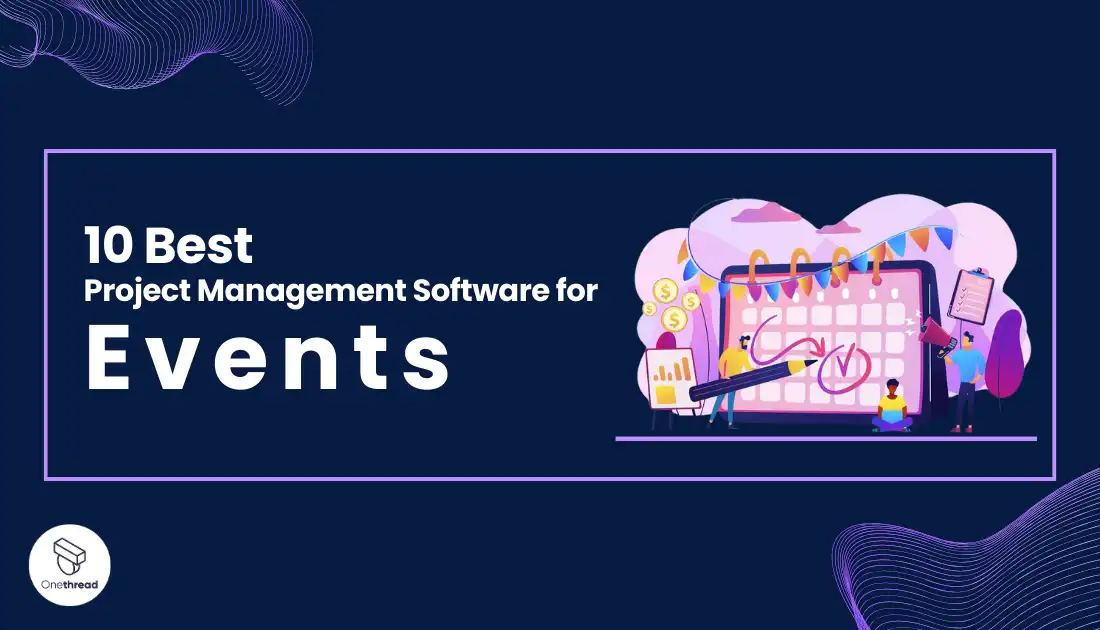Planning a successful event is no easy feat. With so many moving parts and details to track, it’s easy to feel overwhelmed. Do you need help getting organized and managing event logistics?
Are you looking for software to keep your event planning on track? With so many options out there, how do you choose the right project management tool for event pros?
Read on for a quick look at the top event scheduling software that can make your next event a smooth success and keep you sane along the way. We’ll highlight the best picks to streamline your workflow.
Quick List of 10 Project Management Software for Event Planning
- Onethread: Streamlines event scheduling communication, focusing on threaded conversations for efficient coordination and collaboration among event teams.
- Cvent: Offers comprehensive best event management software, ideal for organizing large-scale events and conferences, with features for registration, logistics, and attendee engagement.
- Basecamp: Simplifies project and event management through intuitive to-do lists, file sharing, and messaging, making it a user-friendly choice for smaller event planning teams.
- Wrike: Tailored for event scheduling with customizable workflows and real-time collaboration, ideal for managing intricate event projects and tracking tasks efficiently.
- Whova: Enhances attendee engagement through its event app, enabling event planners to create interactive and engaging experiences while efficiently managing logistics.
- Trello: Known for its visual task management, Trello is best for small to medium-sized events where simple yet effective task tracking is essential.
- Asana: Offers robust project management features, including customizable views and time tracking, suitable for event planners coordinating multiple events with varied complexities.
- Eventbrite: Specializes in ticketing and registration, making it ideal for event planners focused on selling tickets, promoting events, and managing attendee data.
- Monday.com: A versatile platform that can adapt to various event planning needs, from managing schedules to tracking budgets and tasks for different event types.
- TeamWork: Simplifies event registration and promotion, making it an excellent choice for event planners seeking a straightforward solution to streamline event logistics.
PS: Those who know what project management software for event planning is and its benefits, skip to the Top 10 project management software for event planning.
Our reviewers evaluate software independently. Clicks may earn a commission, which supports testing. Learn how we stay transparent & our review methodology
What is Project Management Software for Event Planning?
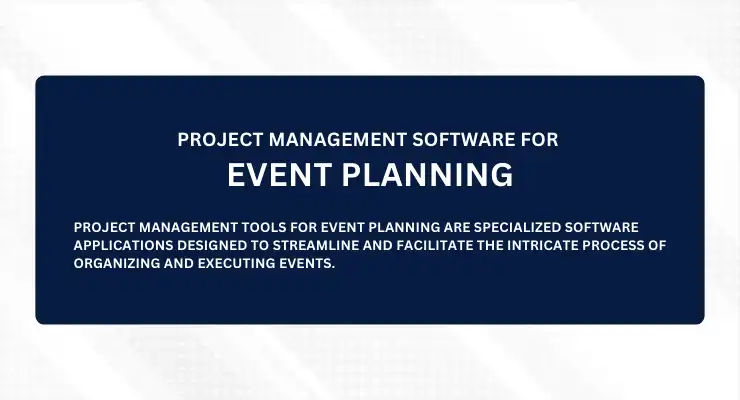
Project management tools for event planning are specialized software applications designed to streamline and facilitate the intricate process of organizing and executing events.
These tools serve as the backbone of event management, offering features like task management, team collaboration, timeline tracking, and resource allocation.
Event planners use them to create structured project plans, assign responsibilities, set deadlines, and monitor progress, ensuring that every detail of an event, from logistics to marketing, is managed efficiently.
These tools play a vital role in enhancing communication among event teams, reducing errors, and ultimately leading to the successful execution of various types of events, from weddings and conferences to festivals and corporate gatherings.
leveraging RegFox’s free event registration form can significantly streamline your event planning process. With its user-friendly interface, customizable options, and robust data management capabilities, you can save both time and effort while enhancing attendee experience
Advantages of Using Project Management Software for Event Planning
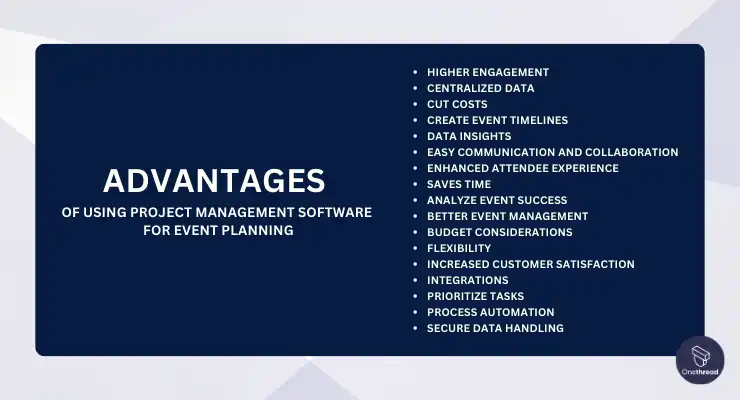



Project Management Tools for Event scheduling are invaluable assets for individuals and businesses alike. Here’s why they are crucial:
- Higher Engagement: Engage attendees and stakeholders more effectively through streamlined communication and collaboration.
- Centralized Data: Keep all event-related information and data in one central location for easy access and reference.
- Cut Costs: Reduce expenses by optimizing resources, managing budgets effectively, and avoiding unnecessary expenditures.
- Create Event Timelines: Develop and manage event timelines to stay organized and meet deadlines efficiently.
- Data Insights: Gain valuable insights from event data to make informed decisions and improvements.
- Easy Communication and Collaboration: Facilitate seamless communication and collaboration among team members.
- Enhanced Attendee Experience: Provide a better experience for attendees by delivering well-organized and engaging events.
- Saves Time: Automate repetitive tasks and workflows, saving time for more strategic event planning.
- Analyze Event Success: Evaluate event success by analyzing key performance indicators and attendee feedback.
- Better Event Management: Improve overall event management by having a structured approach and clear processes.
- Budget Considerations: Effectively manage event budgets and expenses to stay within financial constraints.
- Flexibility: Adapt to changes and unforeseen circumstances with greater flexibility and agility.
- Increased Customer Satisfaction: Satisfy attendees and clients by delivering successful events that meet their expectations.
- Integrations: Seamlessly integrate with other tools and platforms for a more comprehensive event management solution.
- Prioritize Tasks: Set priorities for tasks and activities to ensure that critical elements are addressed first.
- Process Automation: Automate routine processes to reduce manual effort and increase efficiency.
- Secure Data Handling: Ensure the security and confidentiality of event-related data and information.
Using project management software for event planning can bring numerous benefits, making the entire process more efficient, cost-effective, and successful.
Top 10 Project Management Software for Event Planning
When it comes to event scheduling, the right project management tool can be a game-changer. Below this table will include the software’s name, its key features, best suitability, and user ratings. Here’s the initial structure:
Software | Key Features | Best Suitable For | G2 User Ratings |
  | Task management, Real-time chat, Budget tracking | Small to medium-sized event planners | 4.7 |
  | Vendor management, Event registration, Reporting tools | Large-scale events and conferences | 4.3 |
  | File sharing, Message boards, To-do lists | Remote teams, and virtual events | 4.1 |
  | Gantt charts, Time tracking, Workflow automation | Complex projects with multiple teams | 4.2 |
  | Attendee networking, Event agenda, Sponsor promotion | Networking and community events | 4.8 |
  | Kanban boards, Checklist, Card attachments | Flexible planning and small teams | 4.1 |
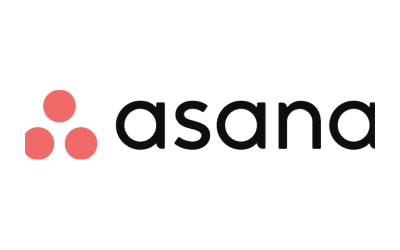  | Milestone tracking, Project timelines, Custom fields | Mid to large-scale events | 4.4 |
  | Ticketing, Event promotion, Payment processing | Public events and ticket sales | 4.3 |
  | Customizable workflows, Time tracking, Data visualization | Custom event planning and management | 4.7 |
  | Event customization, Registration management, Email marketing | Personalized events and marketing | 4.4 |
We’ve compiled the top ten solutions tailored for event planners. These tools streamline tasks, enhance collaboration, and ensure event success. Join us as we explore the best event-planning software options.
1. Onethread
All-in-one tool great for small event teams on a budget
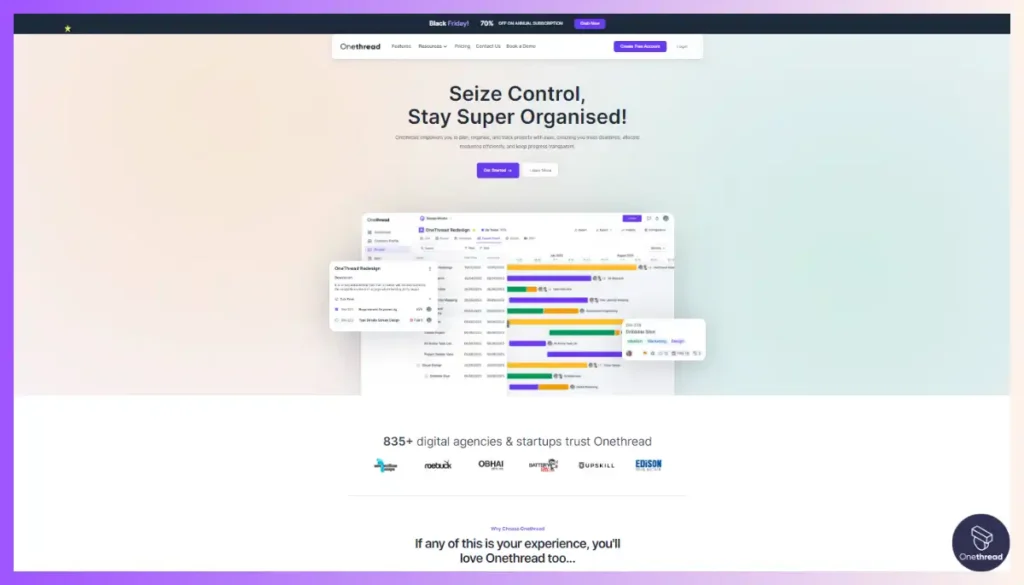

Onethread stands out as the top choice for event planning in the market, thanks to its versatile features, user-friendly interface, and excellent customer support, all offered at an affordable price.
It’s the ultimate project management software for event planning.
Its core features, like task management, project planning, and role permission, align perfectly with the needs of event planners. The customizable dashboards with various visual tools, such as Kanban boards and Gantt charts, enable efficient project monitoring and planning.
Furthermore, Onethread’s differentiation lies in its all-in-one solution approach, eliminating the need for multiple apps. Its clean and simple user interface, combined with localization in various languages and more storage capacity, gives it an edge over competitors.
In addition, Onethread’s scalable nature allows it to integrate seamlessly with other tools, making it a robust choice for any event planning scenario.
When compared to immediate competitors like Basecamp and Wrike, Onethread shines with its superior customer support and easy onboarding process. Its customer support is notably faster, ensuring that users don’t waste valuable time waiting for issue resolution.
The straightforward, intuitive interface of Onethread makes it a preferable choice for those who want efficiency without the hassle of navigating complex software.
Features
Designed with event professionals in mind, it offers an array of features that can take your event scheduling to the next level.
Intuitive Task Management:
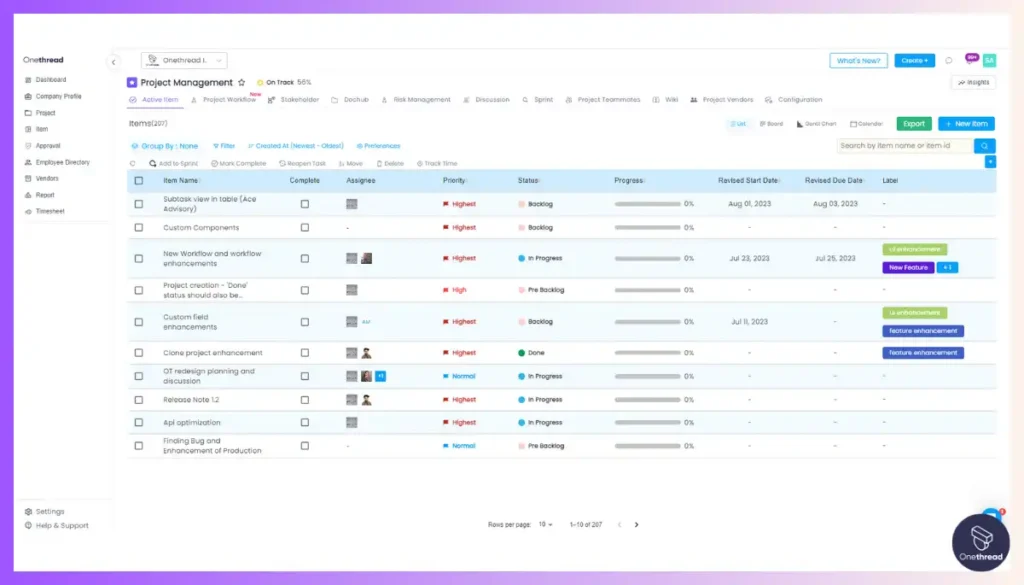

Onethread simplifies task management, allowing you to create, assign, and track tasks effortlessly. Ensure that every detail, from venue booking to vendor coordination, is well-organized and executed on time.
Dynamic Calendar and Timeline:
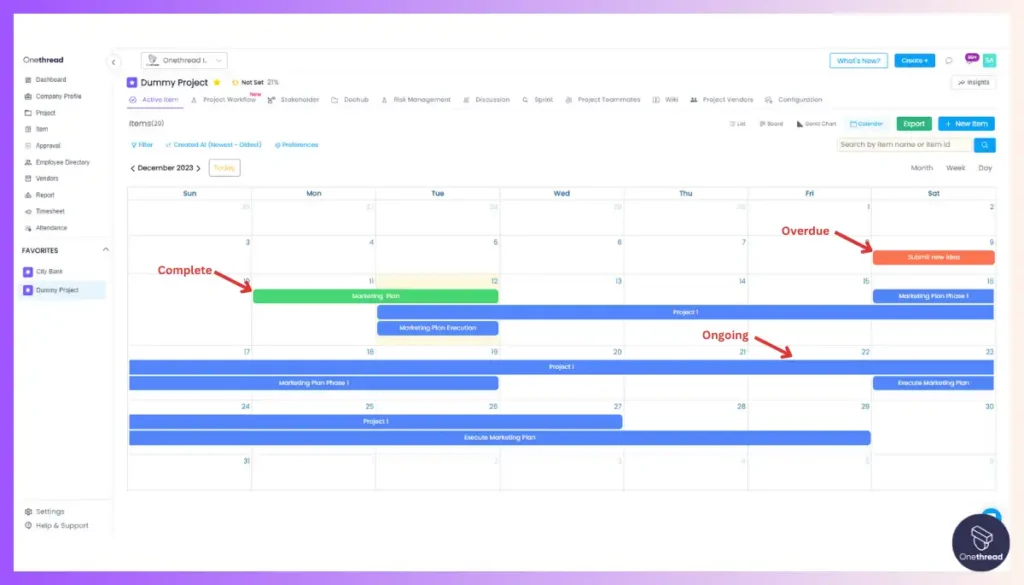

Stay on top of your event’s timeline with Onethread’s dynamic calendar and timeline feature. Create, visualize, and adjust timelines with ease, helping you coordinate tasks and meet deadlines effectively.
Vendor and Resource Coordination:
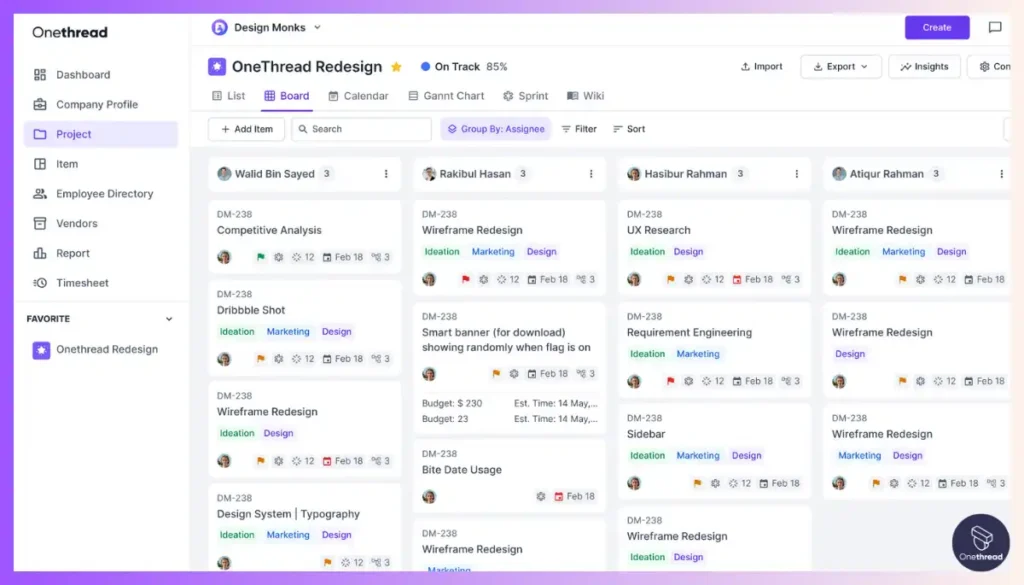

Efficiently manage event resources and vendors within Onethread. Store contact information, and contracts, and track resource allocations, ensuring seamless collaboration with your event partners.
Communication Hub:
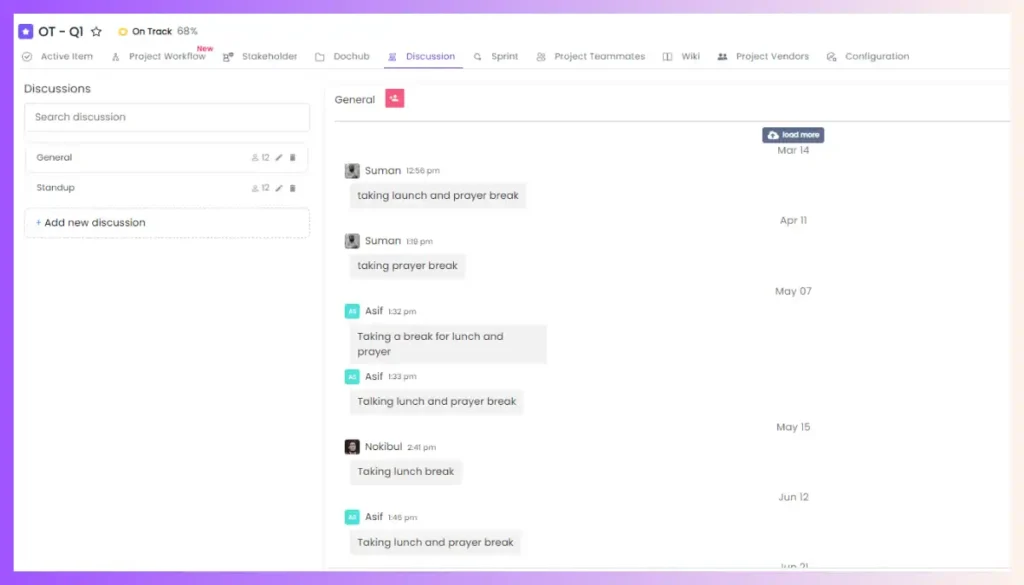

Onethread serves as a central communication hub for your event team, clients, and vendors. Enjoy email integration, messaging, and notifications to keep everyone informed and coordinated throughout the planning process.
Best Use Cases of Onethread
Here’s how Onethread optimizes workflows:
1. Event Management Agencies:
- Organizations: Large, medium, and small event agencies.
- Occupations: Event planners, project managers, coordinators, and marketing specialists.
- Benefits: Centralized platform for managing multiple events, real-time collaboration, and client satisfaction with transparent progress sharing.
2. Corporate Event Teams:
- Organizations: Companies of all sizes planning internal events.
- Occupations: HR professionals, marketing teams, internal event planners.
- Benefits: Simplified logistics, and post-event reporting for conferences, launches, and team outings.
3. Non-Profit Organizations:
- Organizations: Charities, NGOs, and community groups hosting fundraising events.
- Occupations: Volunteers, fundraising coordinators, event committee members.
- Benefits: Vendor management, donor engagement
4. Individual Event Planners:
- Occupations: Freelance event planners, wedding planners, and party planners.
- Benefits: Client-centric workflow, time management, cost-effective solutions.
Pros of using Onethread:
- Versatile adaptability.
- Efficient team collaboration.
- Client transparency.
- Budget management tools.
- Visual planning features.
Pricing plans and options
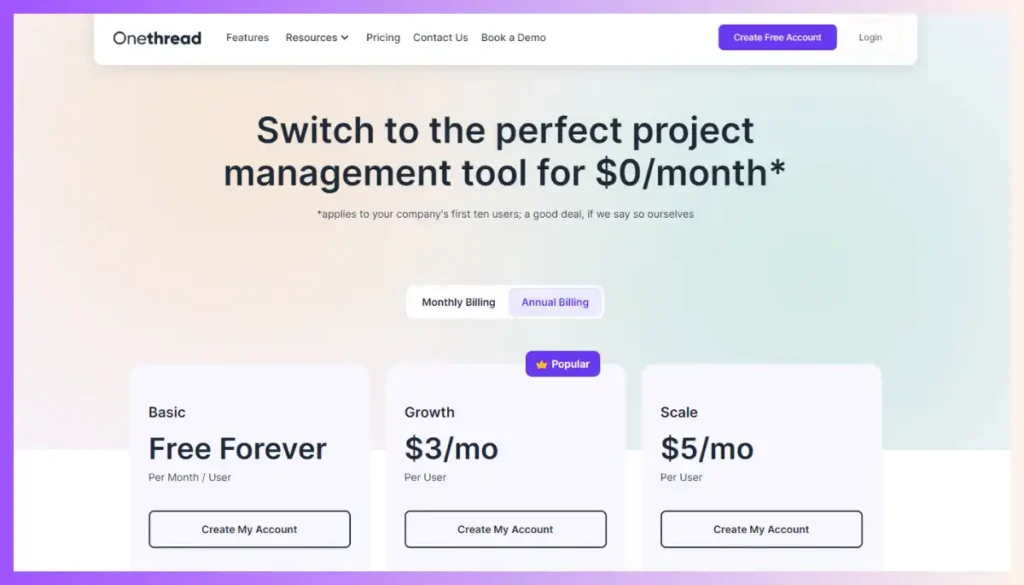

Here are the pricing plans and options for Onethread:
- Free: This plan is free and includes up to 10 users. It offers unlimited organizations, projects, and tasks, as well as 15GB of file sharing, a notice board for company announcements, and a dashboard for both organization and project.
- Growth: Priced at $3/user/month (annually). It caters to 11-50 users and includes unlimited file sharing, access level control, and additional features like the ability to export tasks and projects, and standardized reports.
- Scale: For larger teams of up to 200 users, this package costs $5/user/month (annually). It includes all features of the Growth Package, along with early access to new features and upcoming tools such as risk management, custom workflow, and budgeting.
What Users Say About Onethread?
Product Hunt Review: 5/5
“The onboarding process is much easier. It also helps me track my productivity. I am currently using the free trial. As far as I have used it, it has become a part of my life now. I love it. Thank you for the lovely tool. Best of luck.” Anisul Islam
G2 Review: 4.7/5
“The support team and the UX. The discussion section is one of the coolest ideas as well.” Minhaz F.
Why Should You Choose Onethread?
Here’s how Onethread specifically caters to the needs and resolves issues often encountered with other software:
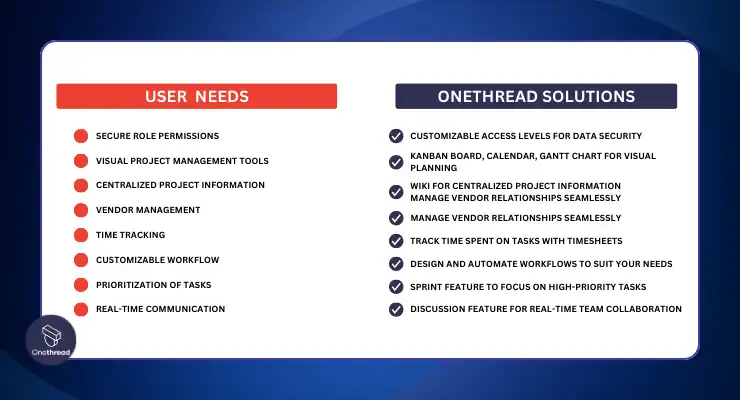



This table shows that Onethread not only offers the necessary tools for effective event scheduling but also addresses specific challenges faced in project management.
2. Cvent
Robust platform built for large-scale event management
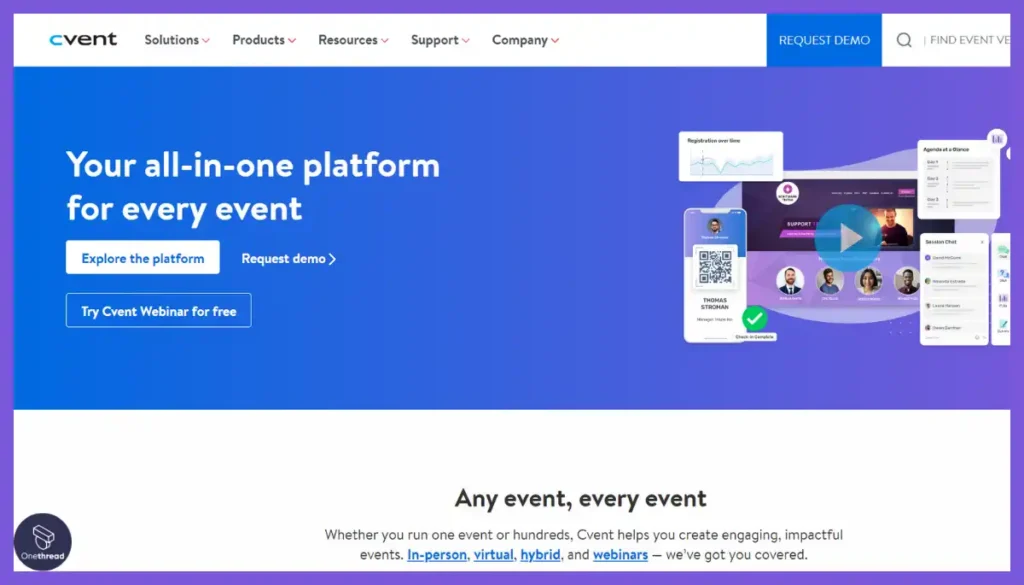

Cvent stands out as a highly effective project management app for event planning, distinguished by its robust features such as comprehensive event registration, versatile venue sourcing, detailed analytics, and efficient marketing tools.
These features are essential in the realm of event management. During our analysis, we found that Cvent’s streamlined interface and automated workflows greatly simplify complex event scheduling tasks.
Its ability to integrate with other platforms enhances overall productivity. Additionally, Cvent’s real-time data analytics empower planners to make informed decisions quickly.
These capabilities, combined with its extensive customization options, make Cvent a top choice for professionals seeking a reliable and versatile event scheduling solution.
Features
Cvent stands out as the best project management platform for event scheduling due to its comprehensive features:
Event Planning and Management:
Cvent offers a robust event scheduling toolkit. This includes managing invitations, registrations, and attendee tracking. It simplifies complex event logistics, making it ideal for both small and large-scale events.
Customizable Event Websites:
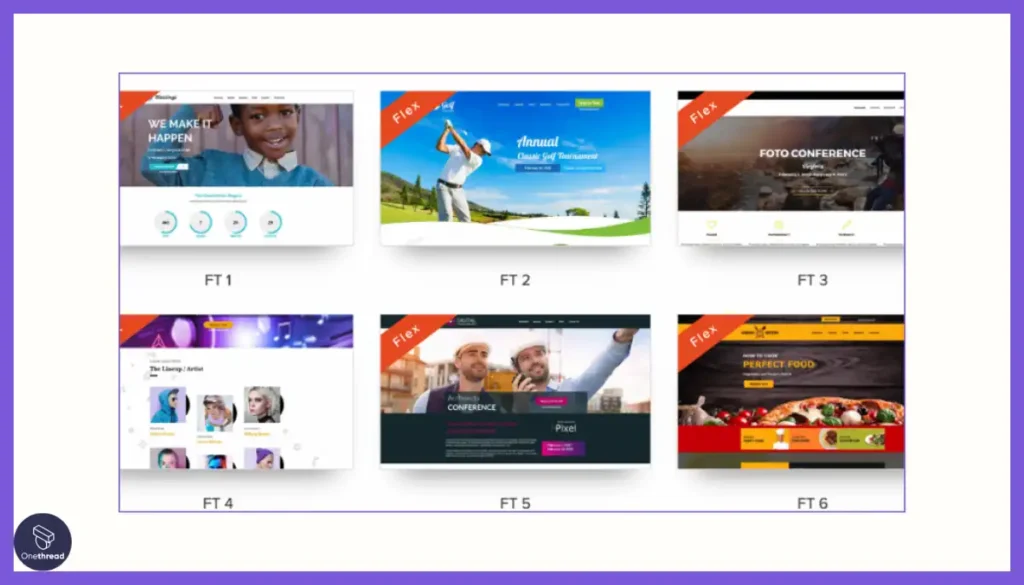

Users can create and customize event websites. These websites are professional-looking and can be tailored to match the event’s theme. This feature enhances the attendee experience and streamlines event information dissemination.
Integrated Marketing Tools:
Cvent includes marketing tools to promote events. These tools support email marketing, social media integration, and targeted campaigns. They help in reaching the right audience and increasing event attendance.
Analytics and Reporting:
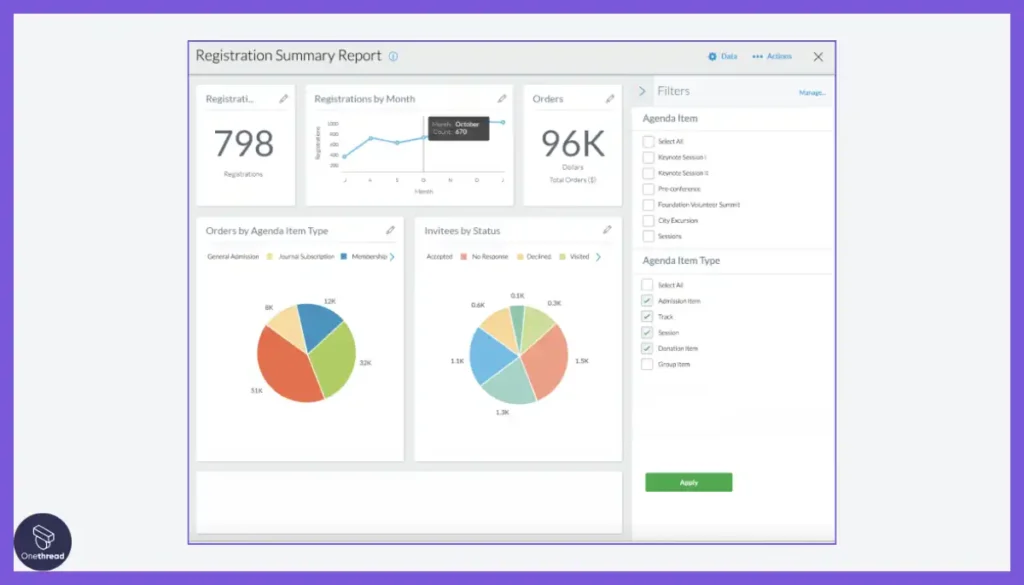

The software provides detailed analytics and reporting capabilities. This feature helps in tracking event success, understanding attendee behavior, and making data-driven decisions for future events.
Pros:
- Comprehensive event management.
- Efficient registration and attendee management.
- Expense tracking.
- Integrated logistics management.
- Detailed reporting and analytics.
Cons:
- Complexity for smaller teams.
- Cost considerations.
Pricing
- Professional: Custom
- Enterprise: Custom
What Users Say About Cvent?
Capterra Review: 4.5/5
Positive Review
“We use it daily and it makes every task more streamlined and efficient. It is very professional and flexible” Mia B.
G2 Review: 4.3/5
Critical Review
“I find that Cvent has some aspects that require workarounds or can be confusing to find the content you need to edit. The testing capabilities could also be improved, as well as giving customers more control in creating dynamic websites and the option of more color choices in templates”.Kyle C.
3. Basecamp
Simple and intuitive for basic event coordination
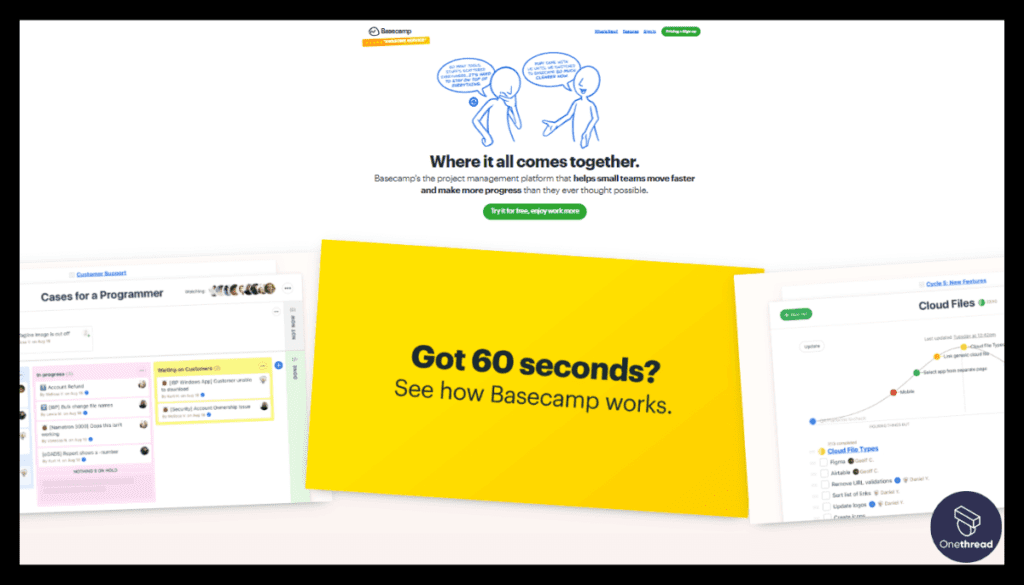



Basecamp is one of the best project management apps for event scheduling, offering a suite of features essential for efficient and effective event coordination.
These include intuitive task management, centralized communication channels, file-sharing capabilities, and deadline tracking. During our thorough testing, we observed Basecamp’s user-friendly interface simplifies project tracking and team collaboration.
Its task lists and message boards provide a clear overview of project progress, ensuring nothing slips through the cracks.
If you’re looking for a more flexible and versatile solution, Notion might be worth exploring further.
Learn more about Basecamp & Notion here.
Another contender worth evaluating in the context of event scheduling is Trello. While Basecamp provides a user-friendly interface and fundamental features for efficient event coordination, Trello offers a different set of tools.
Despite this, Basecamp’s straightforward design and robust fundamental features make it a top choice for event scheduling, balancing simplicity with functionality.
Features
Basecamp, as a top-tier project management solution for event planning, offers several key features:
Event Planning and Coordination:
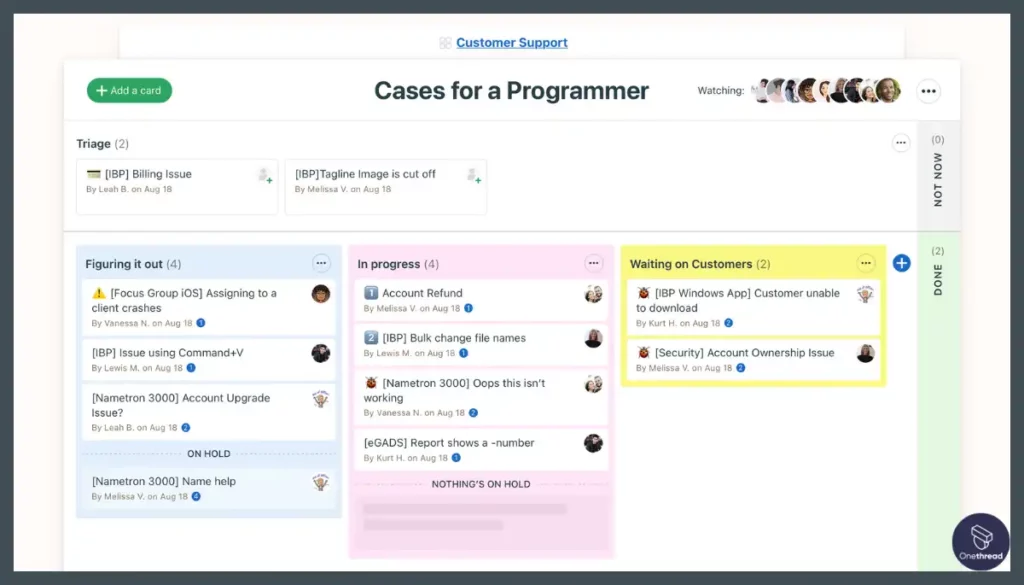

Basecamp excels in facilitating event scheduling through centralized task lists, schedules, and collaborative tools. This ensures that all team members are on the same page and deadlines are met efficiently.
Real-Time Communication:
With integrated chat rooms and message boards, Basecamp allows for seamless real-time communication among team members. This feature is crucial for quick decision-making and maintaining a steady flow of information during event scheduling.
Document and File Storage:
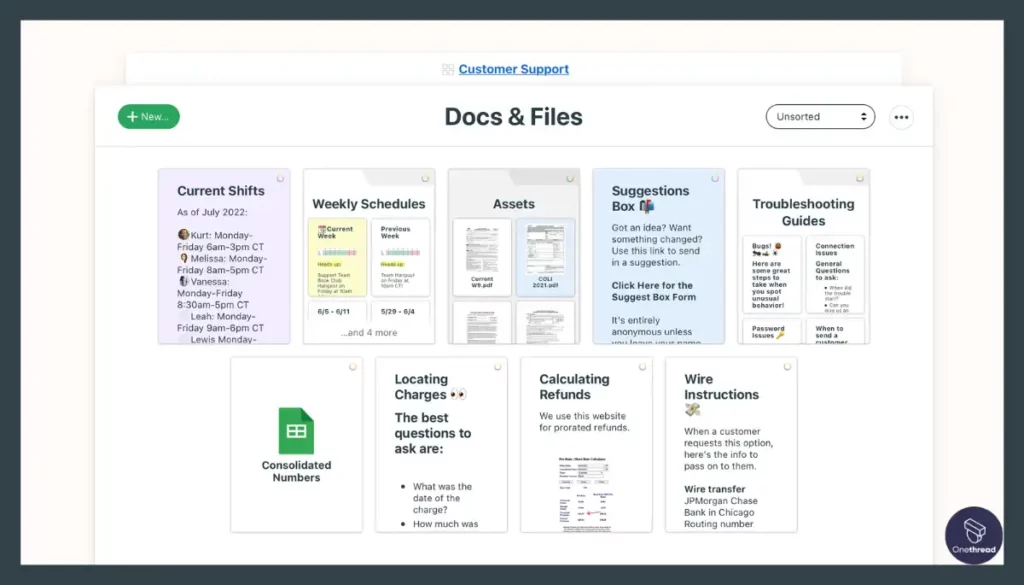

Basecamp provides a robust file storage system where all event-related documents, from contracts to promotional materials, can be securely stored and easily accessed by team members.
Progress Tracking:
The software includes features for tracking milestones and deadlines, offering a clear overview of project progress. This is especially useful for managing multiple aspects of event planning, from venue booking to guest management.
Pros:
- Basecamp has a user-friendly interface for simple event project management.
- Efficiently assign tasks and track progress.
- Real-time chat and messaging for seamless team collaboration.
- Share event documents and files effortlessly.
- Stay connected and manage projects on the go.
Cons:
- Some advanced event scheduling features are missing.
- Costs can increase for larger teams or additional features.
Pricing
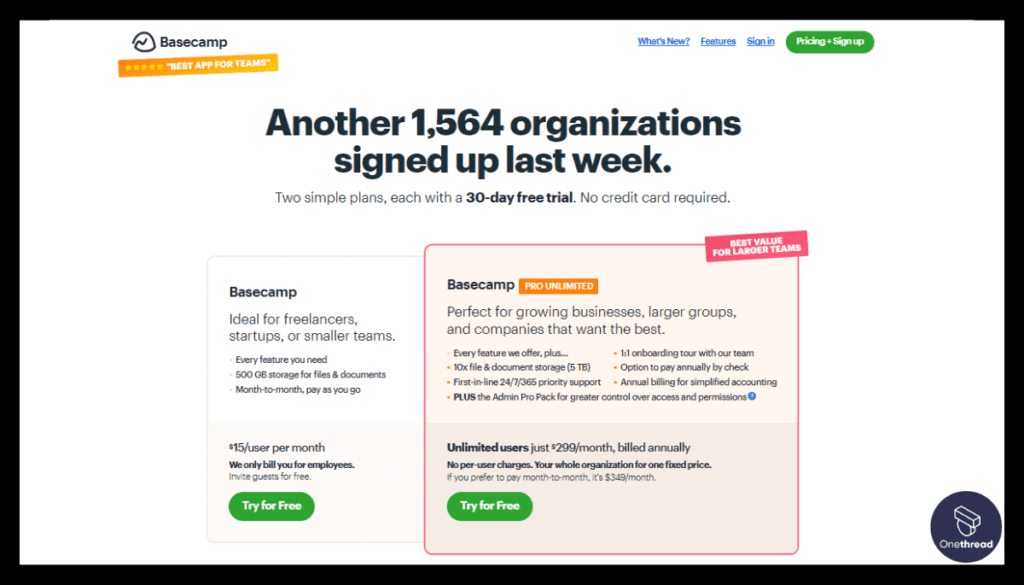



- Basecamp: $15/user/month
- Basecamp Pro: $299/user/month
What Users Say About Basecamp?
Capterra Review: 4.3/5
Positive Review
“It doesn’t require any training for new users to jump on the platform to view their tasks and deadlines and communicate within the project.”Angela B.
G2 Review: 4.1/5
Critical Review
“Basecamp is costly programming to buy. they ought to add a few additional highlights to their product. Their client care administrations are additionally not sufficient. The site might be slack or be in the middle of work. There is an irregular blunder in the records because of which the work ought to be erased” Camia T.
4. Wrike
Great for managing complex events with multiple stakeholders
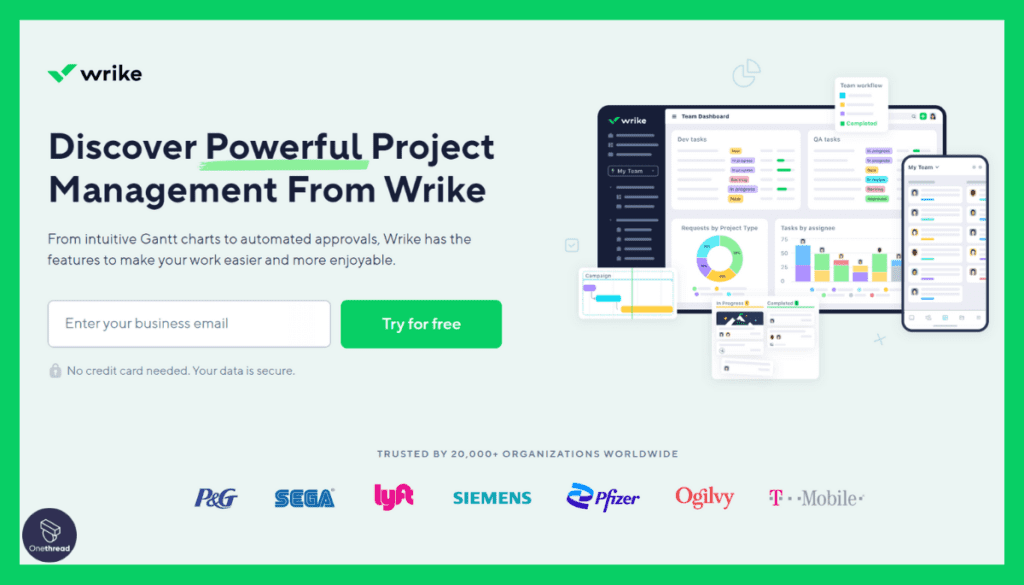



Wrike stands out as another exceptional project management tool for event planning, offering key features like comprehensive task management, real-time collaboration tools, customizable workflows, and detailed analytics.
These elements are crucial for effective event scheduling. During our in-depth testing and analysis, it became evident that Wrike’s strengths lie in its ability to adapt to various event sizes and complexities, making it highly versatile.
The software excels in providing a centralized platform for managing all aspects of event planning, from initial concept to execution. Wrike’s intuitive interface streamlines the planning process, ensuring team members can focus on delivering memorable events rather than navigating cumbersome software.
Its robust set of tools and features, coupled with its adaptability, rightfully place Wrike among the top choices for event planners seeking a reliable and efficient project management solution.
Features
Wrike stands out as the best project management app for event scheduling due to its comprehensive features:
Advanced Event Planning Tools:
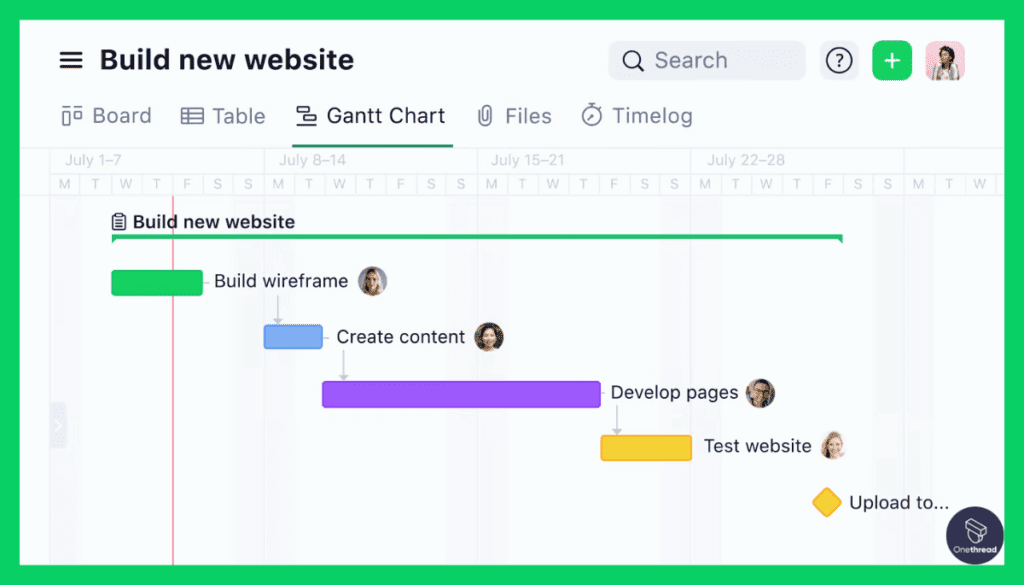



Wrike offers detailed planning capabilities, including interactive Gantt charts, which are ideal for mapping out event timelines and dependencies.
Customizable Workflows:
Tailor workflows to specific event scheduling needs, allowing for flexibility and efficiency in managing various stages of an event.
Real-Time Collaboration:
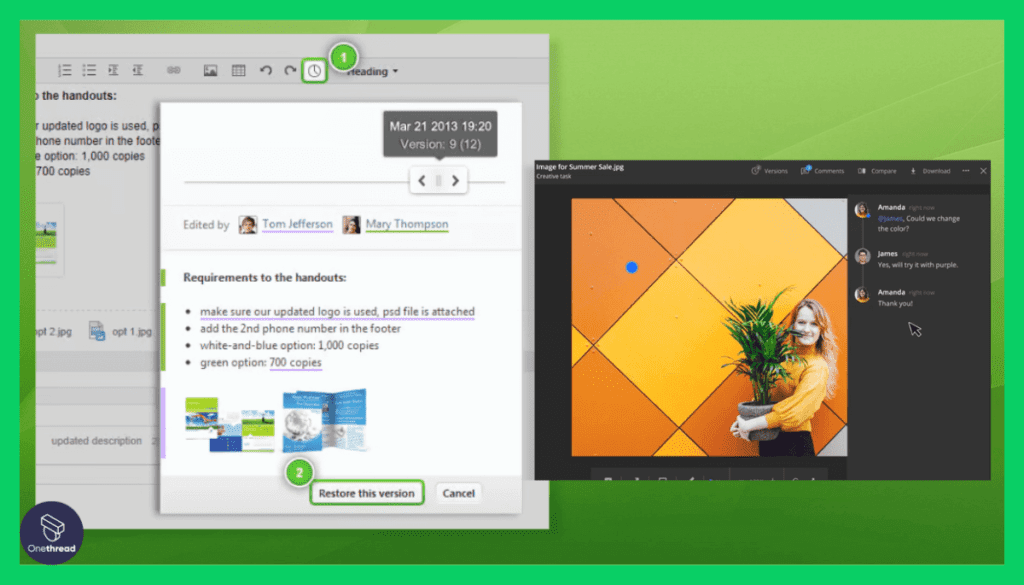



With live editing and discussion features, Wrike facilitates seamless team communication and coordination, essential for fast-paced event scheduling.
Comprehensive Reporting and Analytics:
Wrike provides detailed reports and analytics, helping event planners track progress, manage budgets, and analyze the success of their events.
Pros:
- Customizable workflows.
- Real-time collaboration.
- Task prioritization.
- Integration capabilities.
- Robust reporting and analytics.
Cons:
- Pricing considerations.
- Resource management limitations for larger events.
Pricing
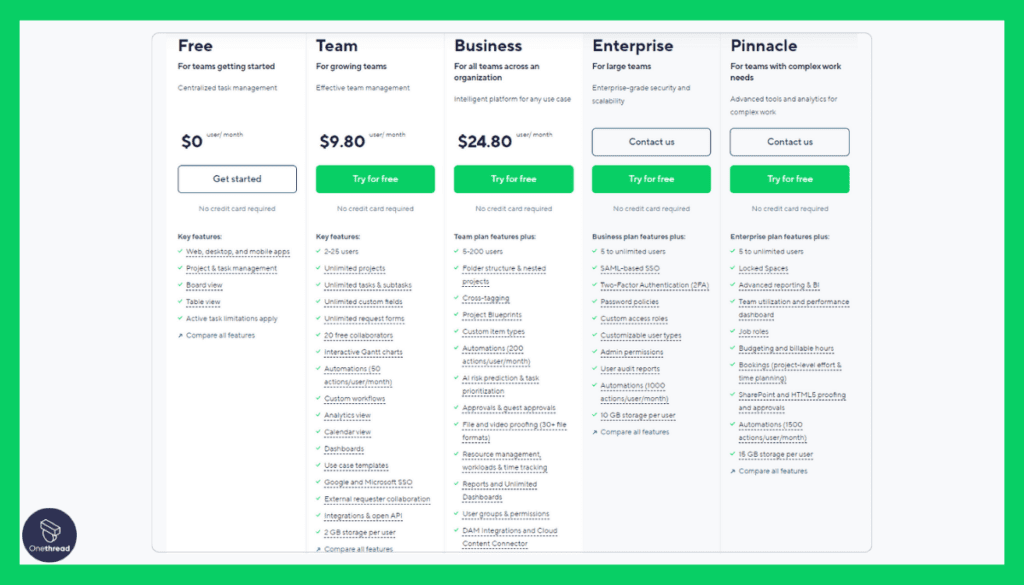



- Free: $0
- Team: $9.80/user/month
- Business: $24.80/user/month
- Enterprise: Custom Pricing
- Pinnacle: Custom Pricing
What Users Say About Wrike?
Capterra Review: 4.3/5
Positive Review
“Wrike is an adaptable, powerful, and highly customizable tool. Easily used, with the greatest training and assistance I’ve encountered. They’re constantly adding new functionality in response to user feedback, without disrupting the overall feel or flow of the service.” Stephanie J.
G2 Review: 4.2/5
Critical Review
“Navigation can be difficult at times, sometimes I need a specific section, and the only way to have visibility is to reload another older tab that can navigate me to the previously viewed page. The sidebar can be confusing.” Em S.
5. Whova
Specialized in virtual and hybrid event management
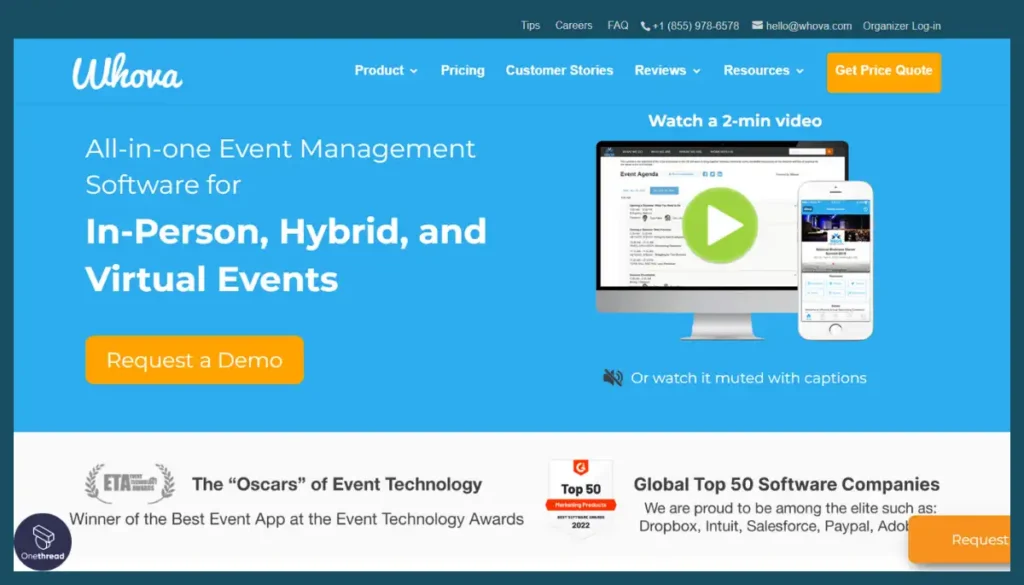

Whova is recognized as the best project management software for event planning, offering key features like real-time event management, attendee engagement tools, integrated marketing solutions, and comprehensive analytics. These features stand out for their efficiency in managing various aspects of event scheduling.
Our testing team found Whova’s user-friendly interface and mobile app integration to be particularly effective. The software facilitates seamless communication between organizers and attendees, enhancing overall engagement. Its marketing tools are adept at promoting events and reaching target audiences.
However, when compared to Trello, Whova’s task management features are less versatile. Trello excels in detailed task tracking and project management.
While Whova efficiently manages event-specific tasks, it might fall short for users seeking extensive project management functionalities beyond event planning.
Features
Whova is recognized as a leading project management app for event scheduling, offering an array of features tailored to streamline event organization:
Comprehensive Event Management:
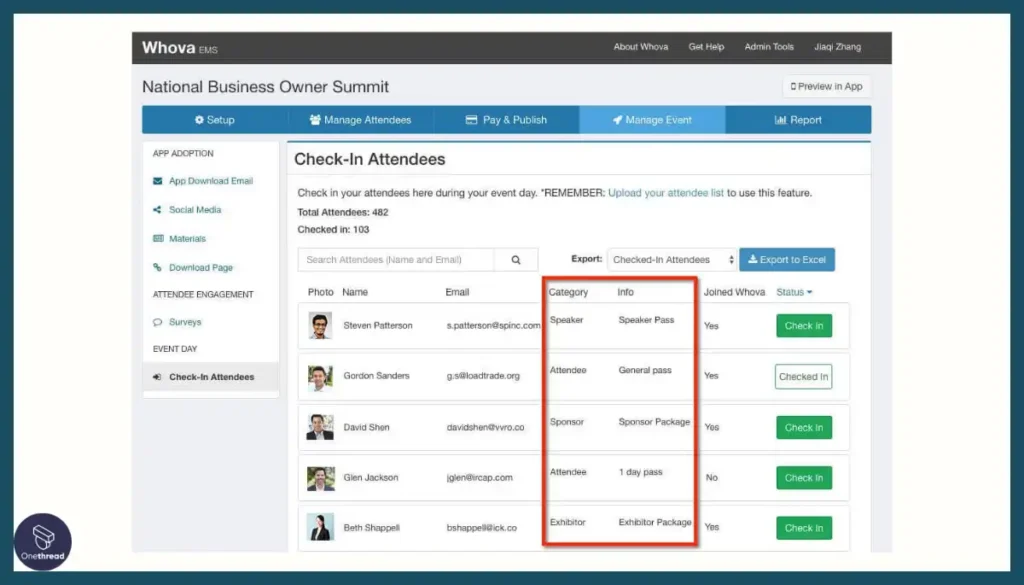

Whova provides a suite of tools specifically designed for event planning, including agenda creation, speaker management, and attendee engagement, ensuring a seamless event organization experience.
Networking and Engagement Tools:
With features like attendee networking, interactive agendas, and live polling, Whova enhances participant engagement, making it easier to foster connections and feedback during events.
Mobile Event App:
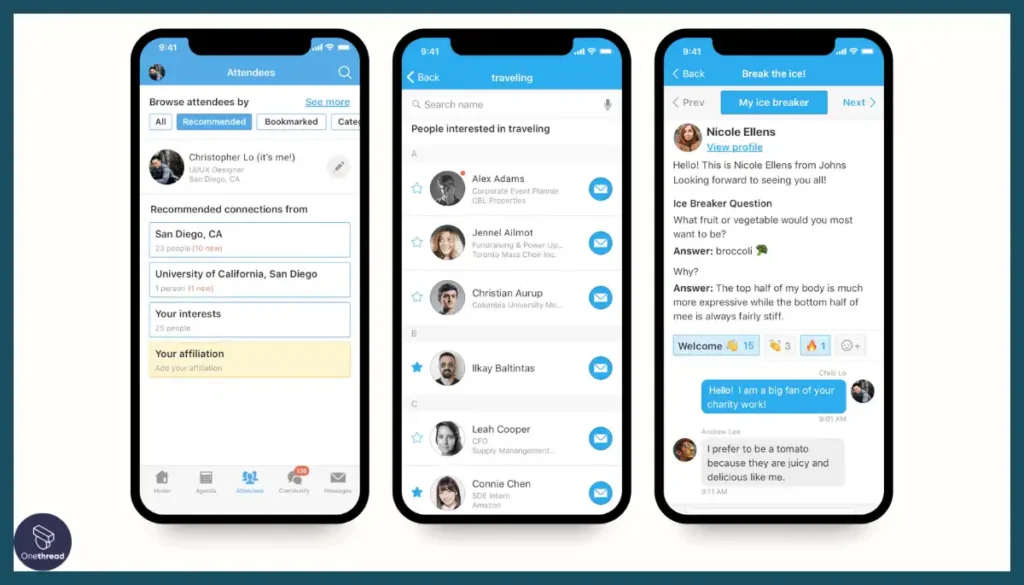

Whova’s mobile app allows attendees to access event information, network with others, and participate in discussions, making the event experience more interactive and accessible.
Sponsorship Opportunities:
The software includes options for showcasing sponsors, providing valuable exposure, and opportunities for monetization, which is crucial for event sustainability and success.
Pros:
- Whova excels in event scheduling.
- Enhances attendee connections.
- User-friendly event mobile app.
- Provides live event data.
- Works with Zoom and Salesforce.
Cons:
- Complex for some users.
- Can be high for larger events.
- Primarily designed for events.
Pricing
There are several pricing plans. You can find out here.
What Users Say About Whova?
Capterra Review: 4.8/5
Positive Review
“Easy to use with lots of features. Loved all the pictures attendees posted in the photo section. Vendors were able to provide information to the attendees about their services. The leaderboard kept everyone engaged. We added additional videos to share with participants as well.” Mary L.
G2 Review: 4.8/5
Critical Review
“I’m sure this depends on the number of people attending your event, but I was overwhelmed by the number of polls, questions, comments, and community interactions. But I was able to find the things that interested me and I could set up notifications for those specific things if I wanted.” Jason J.
6. Trello
Visually compelling boards for creative event pros
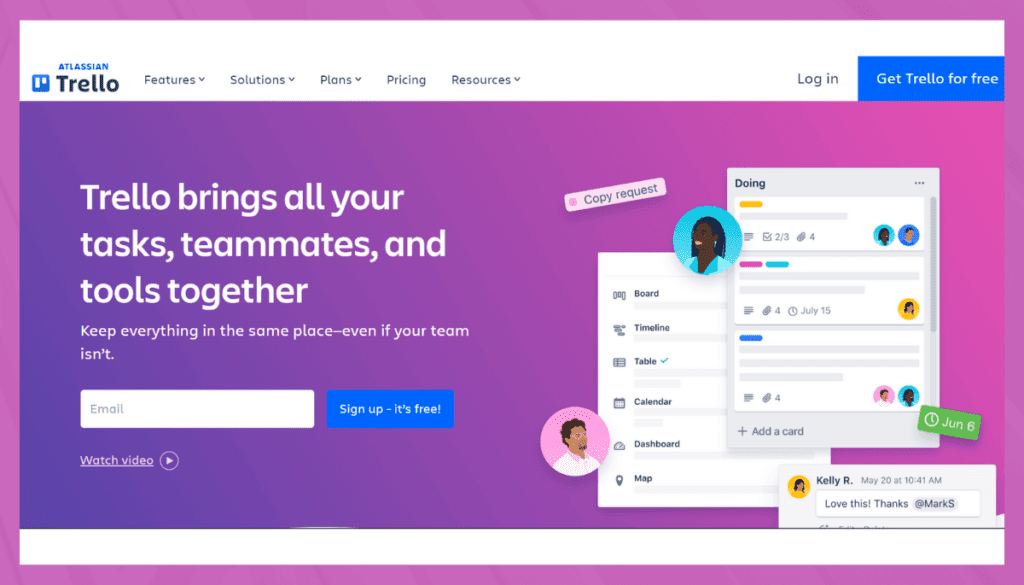



Trello is a standout project management app for event scheduling, offering a suite of features ideal for this field. Its boards and cards system organizes projects and tasks visually, enhancing clarity and workflow.
The various views such as Timeline, Table, Dashboard, and Calendar are crucial for event planners to keep track of deadlines and progress.
Trello’s built-in automation system simplifies repetitive tasks, increasing efficiency. Custom fields and Power-Ups, including integrations with apps like Slack and Salesforce, provide tailored project management solutions.
During our review, we appreciated Trello’s user-friendly interface and its ability to adapt to different event scheduling needs. However, when compared to Asana, Trello‘s drawback lies in its less advanced task dependencies and progress-tracking capabilities, which can be crucial for complex event management.
Features
Trello is a top choice as a project management tool for event scheduling due to its versatile features:
Board and Card System for Event Planning:
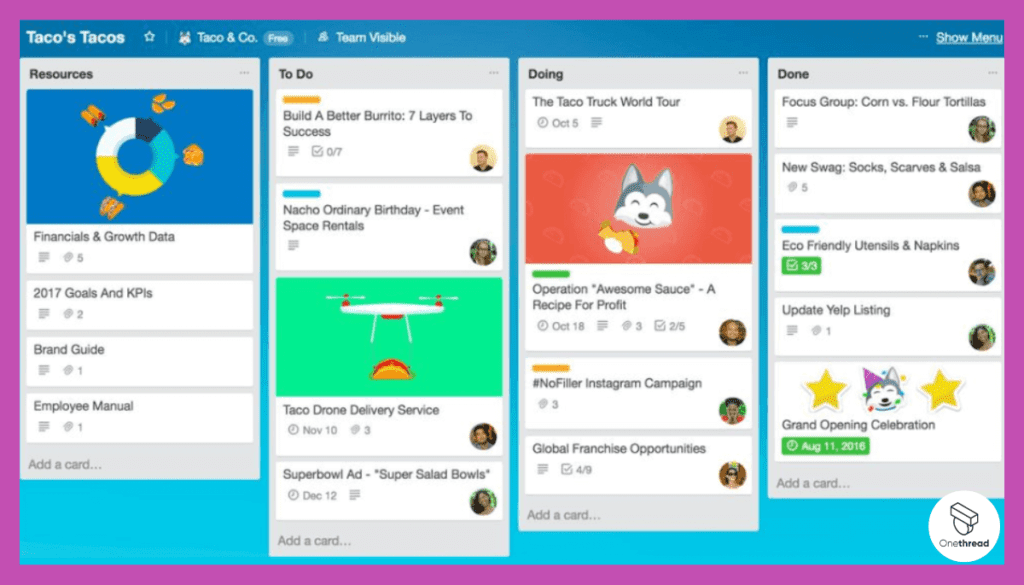



Trello’s board and card system is perfect for organizing event tasks. Each card can represent a task, and boards can be used to categorize different stages of event organizing, such as venue selection, vendor management, and guest lists.
Customizable Workflow:
Users can customize workflows to fit the specific needs of their event. This flexibility allows for easy adaptation as event plans evolve, ensuring a seamless planning process.
Collaboration Tools:
Trello facilitates team collaboration. It allows multiple users to work on the same board, comment on tasks, and share updates in real-time, enhancing team coordination.
Integration with Other Apps:
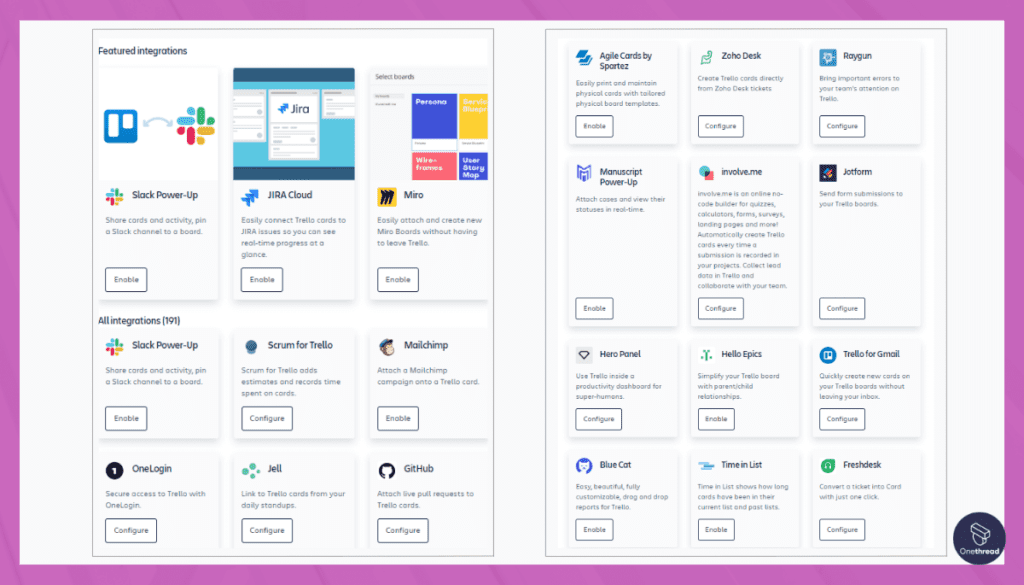



Trello integrates with a variety of other tools and apps, such as Google Drive and Slack. This connectivity ensures that all aspects of event organizing can be managed within a unified system.
Pros:
- Easily track event organizing progress.
- Teams can assign tasks and share files.
- Tailor boards and cards to your workflow.
- Works well with various apps.
- Manage tasks on the go.
Cons:
- Lacks advanced task features.
- Difficulty managing task dependencies.
- May not suit larger, complex projects.
Pricing
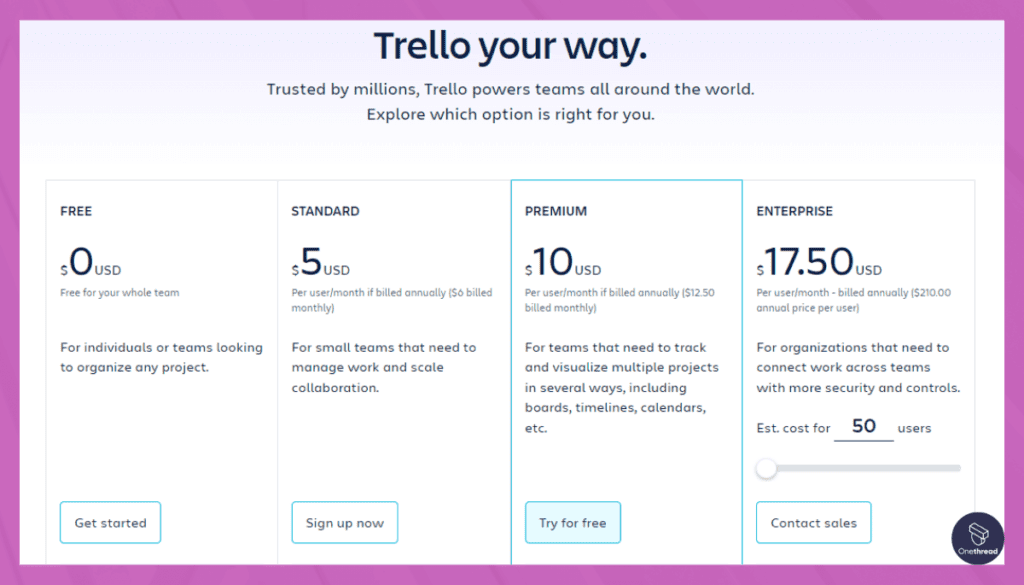



- Free: $0/free trial
- Standard: $5/user/month/annually billed
- Premium: $10/user/month/annually billed
- Enterprise: $17.5/user/month/annually billed
What Users Say About Trello?
Capterra Review: 4.5/5
Positive Review
“It was (is in some scenarios) very easy to use. It was the reason to get into Trello in the first place. It gives you the main tools for your Get Things Done procedure and allows you to automate them easily. Verified Reviewer
G2 Review: 4.4/5
Critical Review
“There is only one thing I miss, but it is quite specific and there is for sure a reason why this feature is not there. When talking about automation and rules, I would like to have as action the possibility to change the Cover of an added card. However, as I say, it is a very small and specific detail.” Abel F.
7. Asana
Smooth UX optimized for collaborative event teams
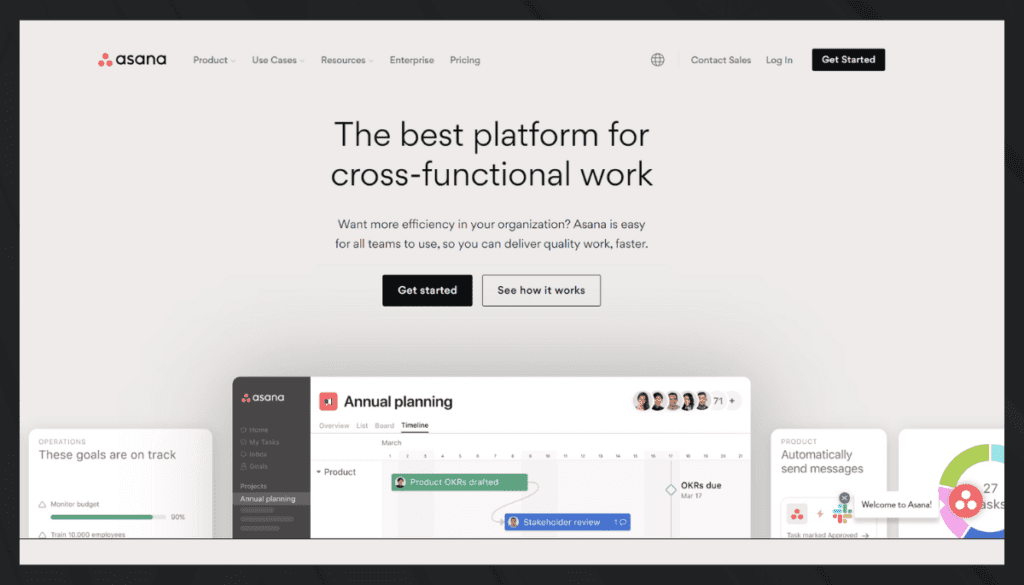



Asana emerges as another strong contender in the project management system for event planning, distinguished by its comprehensive task management, versatile project hubs, customizable fields, and multiple organizational views like calendars, timelines, and Kanban boards.
Our thorough evaluation revealed that Asana’s robust platform excels in facilitating team collaboration and streamlining workflows, making it a reliable choice for event planners.
The software’s ability to connect teamwork with company objectives, coupled with its advanced reporting and AI-driven insights, enhances its effectiveness in managing complex events. Moreover, Asana’s scalability, from individual use to enterprise-level capabilities, and its integration with numerous tools make it an adaptable solution for diverse event-organizing needs.
When comparing project management systems like , Asana stands out for its user-friendly interface and scalability, catering to individual users’ and enterprise-level needs.
Features
Let’s dive into why Asana is the go-to project management software for event organizing.
Real-Time Collaboration:
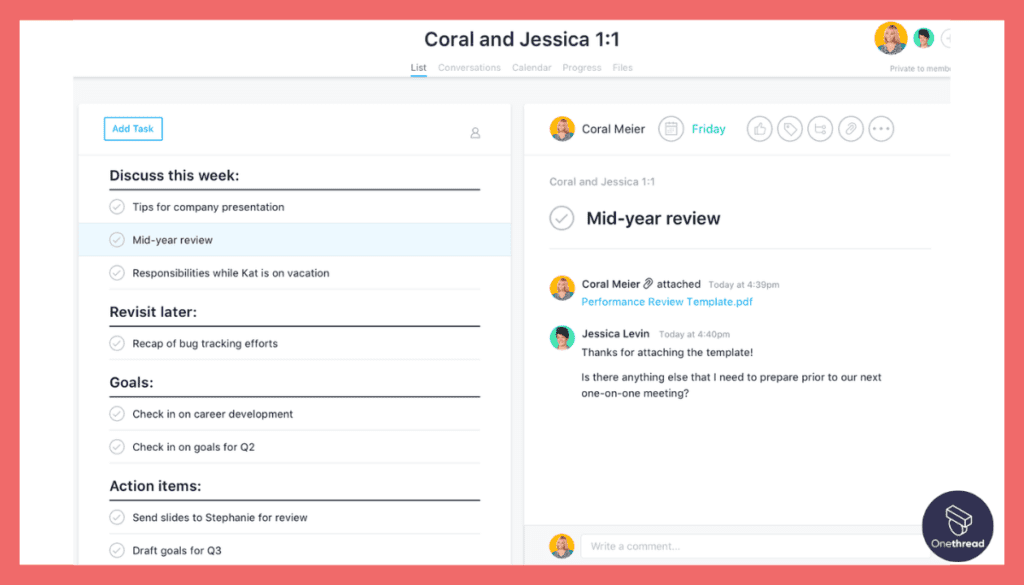



Asana allows team members to collaborate in real-time. You can assign tasks, set deadlines, and track progress all in one place. This feature is crucial for event organizing where timing is everything.
Task Automation:
Automate repetitive tasks and set up custom workflows. This saves time and ensures that nothing falls through the cracks. For event planners, this means more focus on the creative aspects of the event.
File Sharing and Attachments:
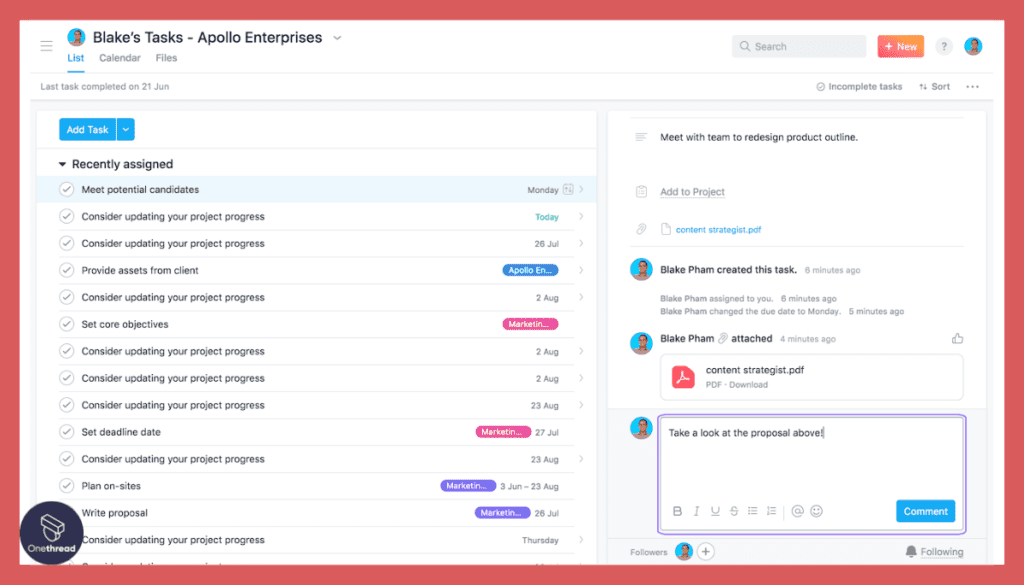



Easily attach files to tasks and share them with team members. Whether it’s a venue contract or a guest list, all your important documents are stored in one place. This eliminates the need for endless email threads.
Third-Party Integrations:
Asana integrates with over 1000+ apps like Google Drive, Slack, and Zoom. This makes it easier to keep all your tools in one place. For event organizing, this could mean seamless communication and file sharing.
Detailed Reporting:
Track the performance of your projects with detailed reports. You can customize these reports to focus on what matters most. For event planners, this could mean tracking budget spend or attendee engagement.
Pros
- User-friendly interface
- Robust third-party integrations
- Excellent task automation features
- Real-time collaboration
- Comprehensive reporting tools
Cons
- Can be overwhelming for new users
- Limited features in the free plan
- May require some training to fully utilize
Pricing Plan
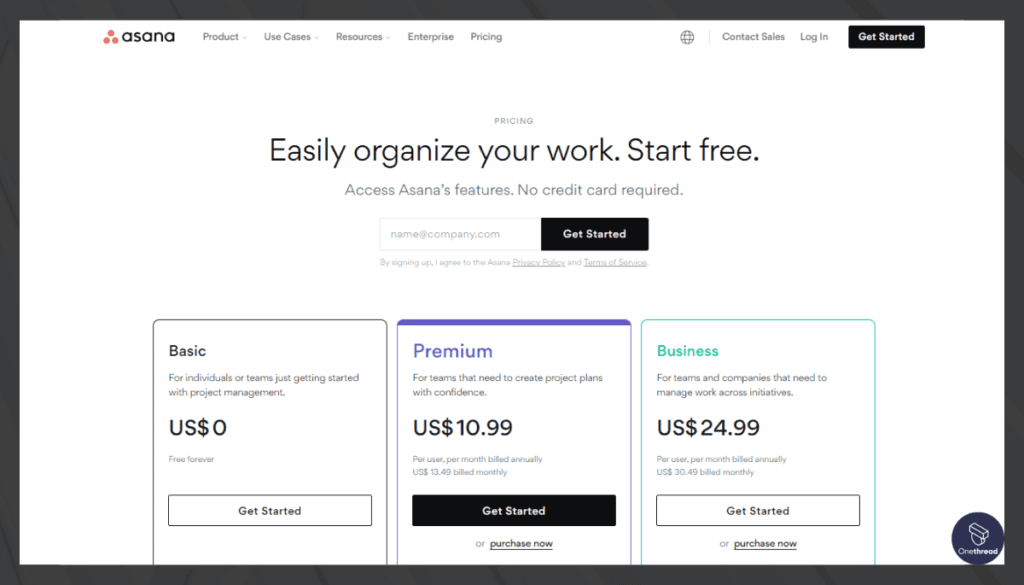



- Basic: Free
- Premium: $10.99 per user/month
- Business: $24.99 per user/month
- Enterprise: Custom pricing
What Users Say About Asana?
Capterra Review: 4.5/5
Positive Review
“It’s much more simple than other alternatives, it’s easy to use, and has a great design and good features, especially for to-do lists and task management. It’s competitive in terms of price, and it’s a good value for money.” Dan G.
G2 Review: 4.5/5
Critical Review
“If your business requires comprehensive workflows, custom automation like in Jira – Asana is not the best choice. I would say, Asana is more applicable for small-mid teams without any rocket-science workflows or team collaborations. Most probably the non-tech team will profit the most from Asana.” Anton S.
8. Eventbrite
Integrated ticketing and registration for public events
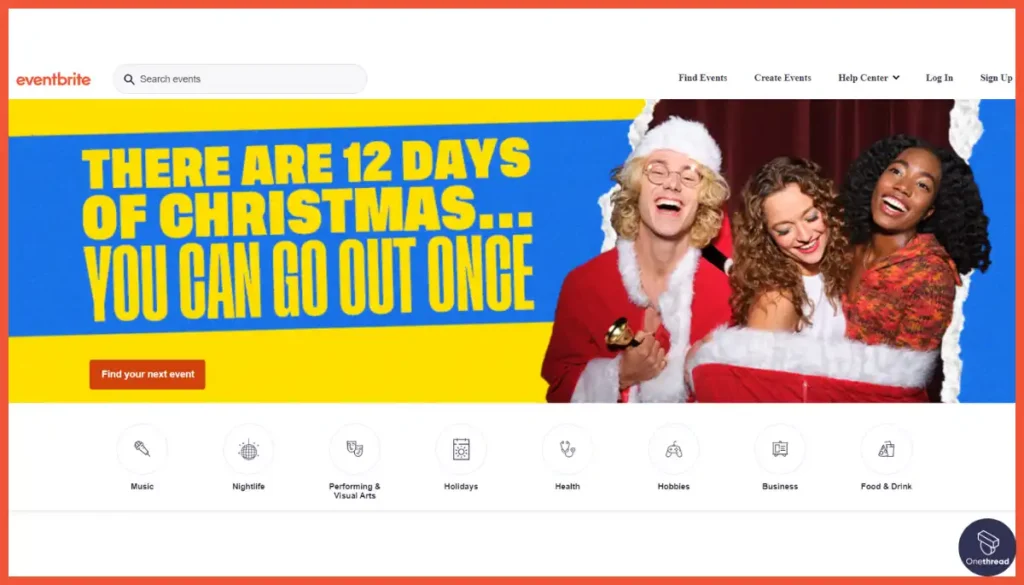

Simplify event planning with Eventbrite! This powerful platform streamlines the complexities of event management by providing a range of tools to create, promote, and oversee events of any scale, from conferences to concerts, all in one place.
With user-friendly features, you can swiftly set up your event page, sell tickets, and even track attendance. Real-time analytics empower you to make data-driven decisions. Eventbrite also enhances the attendee experience with mobile check-ins.
Plus, it seamlessly integrates with other tools. Millions trust Eventbrite as the ultimate solution for hosting successful events. In a nutshell, Eventbrite is synonymous with simplicity, efficiency, and reliability.
Features
Here’s why it stands out as one of the best project management software for event organizing.
Comprehensive Event Creation and Management:
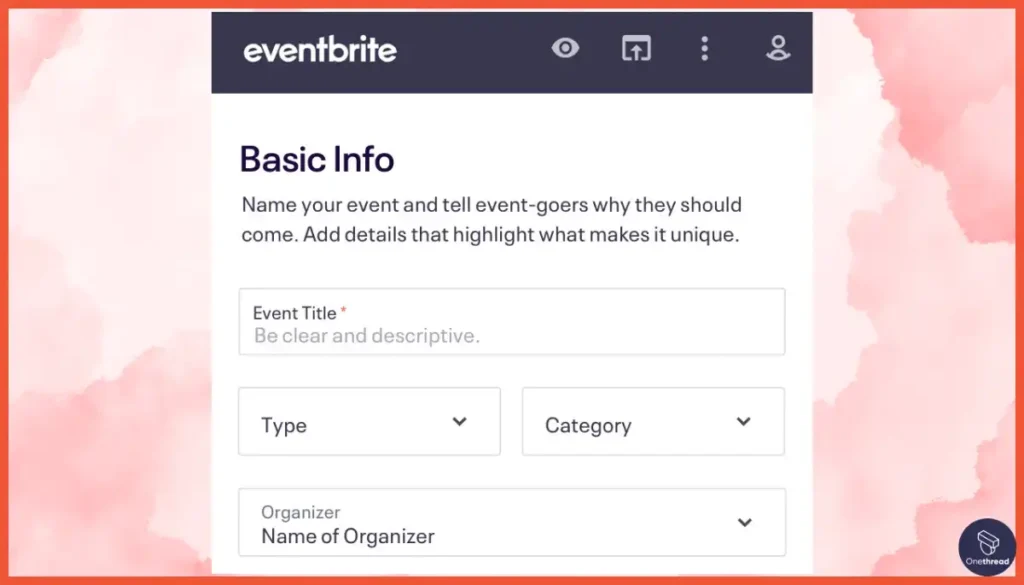

Eventbrite allows you to create and manage your event from start to finish. You can set up ticketing, registration, and even virtual events. This all-in-one platform ensures that you have all the tools you need to make your event a success, from the planning stage to the day of the event.
Real-Time Analytics:
It offers real-time analytics that provides insights into ticket sales, attendee engagement, and more. This feature is invaluable for event planners who need to make data-driven decisions quickly.
Marketing and Promotion Tools:
The platform offers built-in marketing and promotion tools, including social media integrations and email campaigns. For event planners, this means less time spent on third-party marketing platforms and more time focusing on the event itself.
Secure Payment Processing:
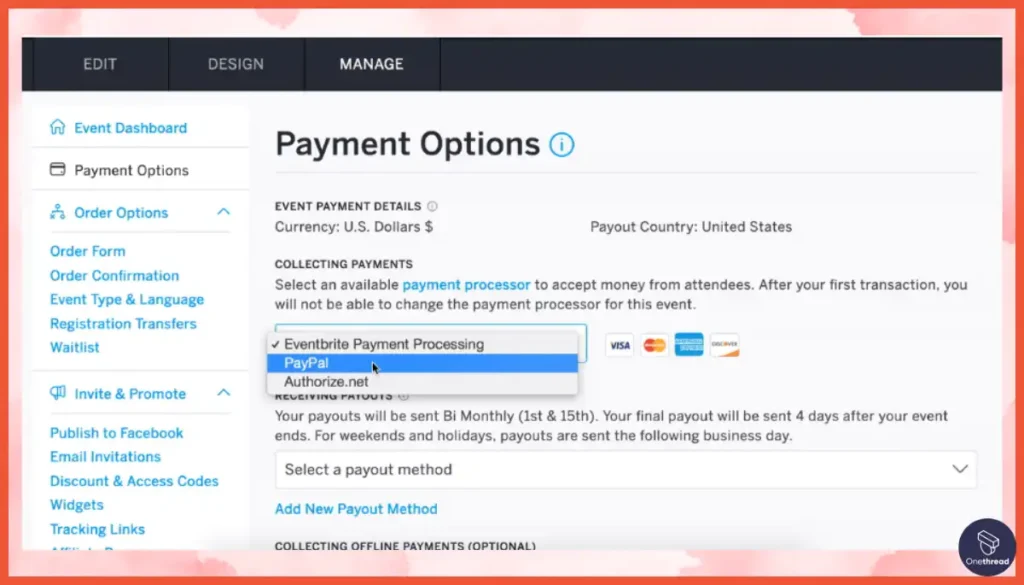

Financial transactions are a critical part of event organizing. Eventbrite offers secure payment processing options, including credit card payments and PayPal. This ensures that both you and your attendees can handle transactions safely and efficiently.
Mobile Optimization:
Eventbrite offers a mobile-optimized platform and even has a mobile app for on-the-go management. This is particularly useful for event planners who need to make quick changes or check-in attendees at the venue.
Pros
- User-friendly interface
- Comprehensive event management features
- Robust analytics and reporting
- Secure payment options
- Effective marketing tools
Cons
- Service fees can add up
- Limited customization in the free plan
- May not be suitable for very small events
Pricing Plan
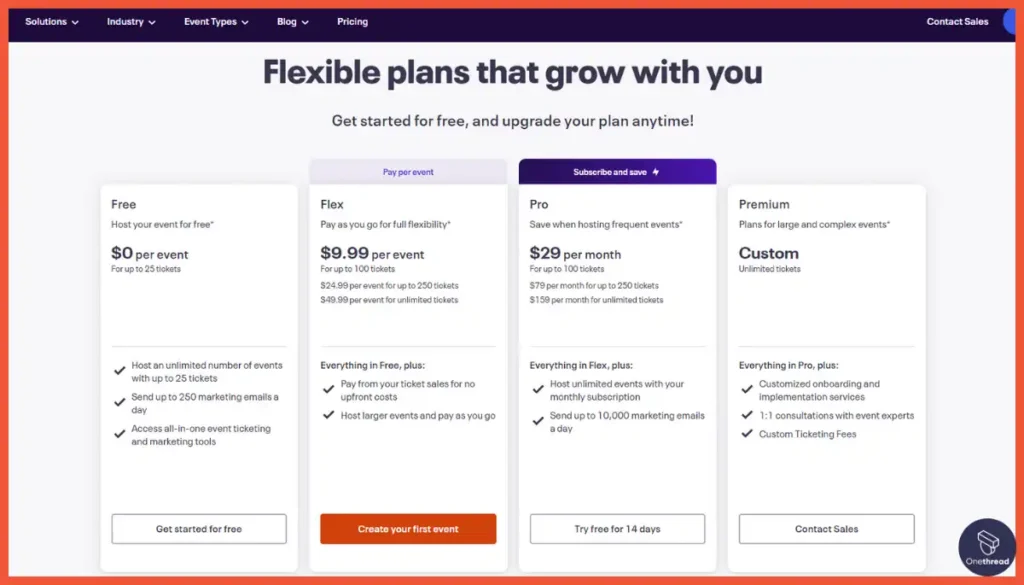

- Essentials: 2% + $0.79 per paid ticket
- Professional: 3.5% + $1.59 per paid ticket
- Premium: Custom pricing
What Users Say About Eventbrite?
Capterra Review: 4.6/5
Positive Review
“Easy to use Easy for customers to use Good reporting tools” Peter F.
G2 Review: 4.3/5
Critical Review
“We were about to do something with a credit-based membership and there was not the possibility to adjust this with Eventbrite” Joep L.
9. Monday.com
Highly customizable for data-driven event managers
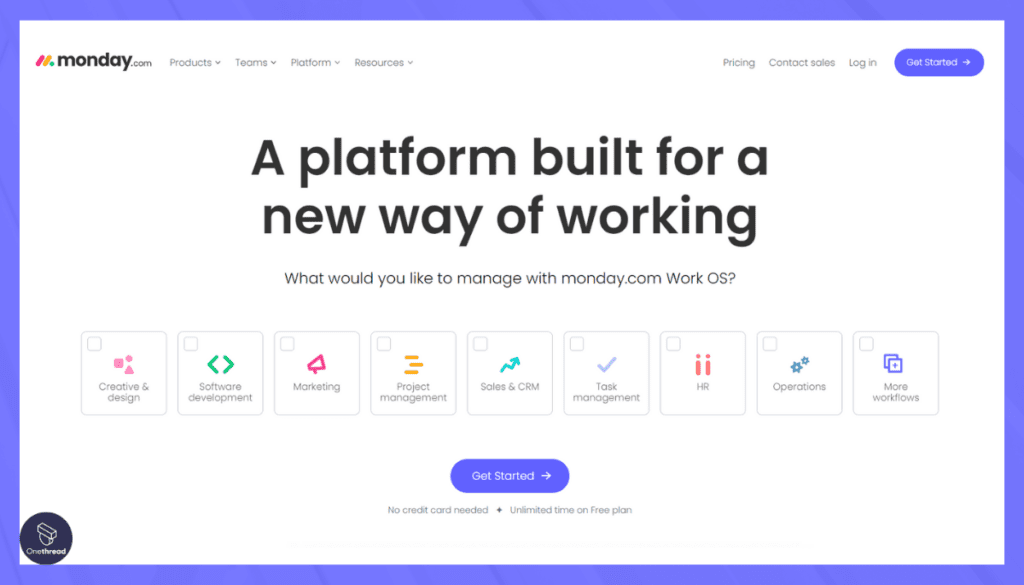



Monday.com emerges as a top-tier project management software for event planning, offering essential features that cater specifically to the demands of event organizations.
It provides a customizable workflow with its visually intuitive boards, facilitating easy tracking of every detail in event organizing. The software’s automation tools significantly reduce manual tasks, boosting efficiency. Its integration capabilities, particularly with tools like Zoom and Microsoft Teams, streamline communication and coordination efforts.
During our analysis, we found that Monday.com’s diverse view options, including Kanban and Gantt charts, offer a comprehensive overview of event timelines and resources.
However, compared to specialized event platforms like Eventbrite, Monday.com lacks certain event-specific functionalities, such as ticketing and attendee management.
Despite this, Monday.com’s robust feature set, including real-time collaboration tools and detailed progress tracking, makes it a versatile choice for event planners.
It bridges the gap between general project management and the specific needs of event planning, although, for events heavily reliant on ticket sales and attendee management, additional tools might be needed.
Features
Here’s why it’s the best project management software for event planning.
Visual Boards for Task Management:
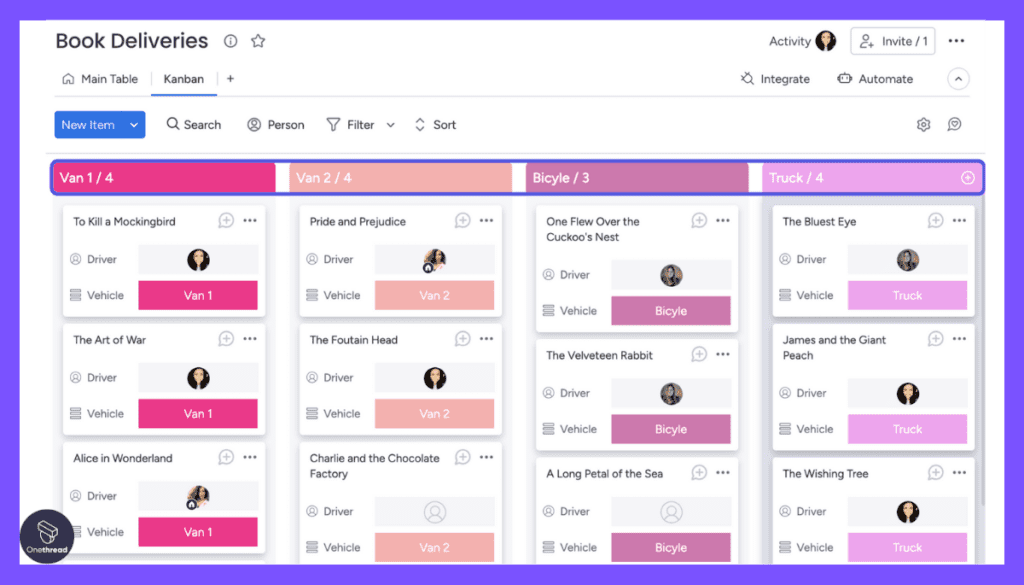



Monday.com starts with a visual board that serves as the core of its Work OS. You can tailor these boards to manage anything from projects to entire departments. For event planners, this means having a clear visual representation of tasks, deadlines, and responsibilities.
Multiple Views for Efficient Planning:
The platform offers various views like Kanban boards, calendars, timelines, and Gantt charts. These views help in visualizing and planning work more efficiently. For event planning, this could mean easily tracking deadlines, milestones, and even the minutest of tasks.
Customizable Dashboards:
Customizable dashboards give you the insights you need to make confident decisions. You can keep track of progress, timelines, and budgets, which are crucial for successful event organizing.
Seamless Integrations:
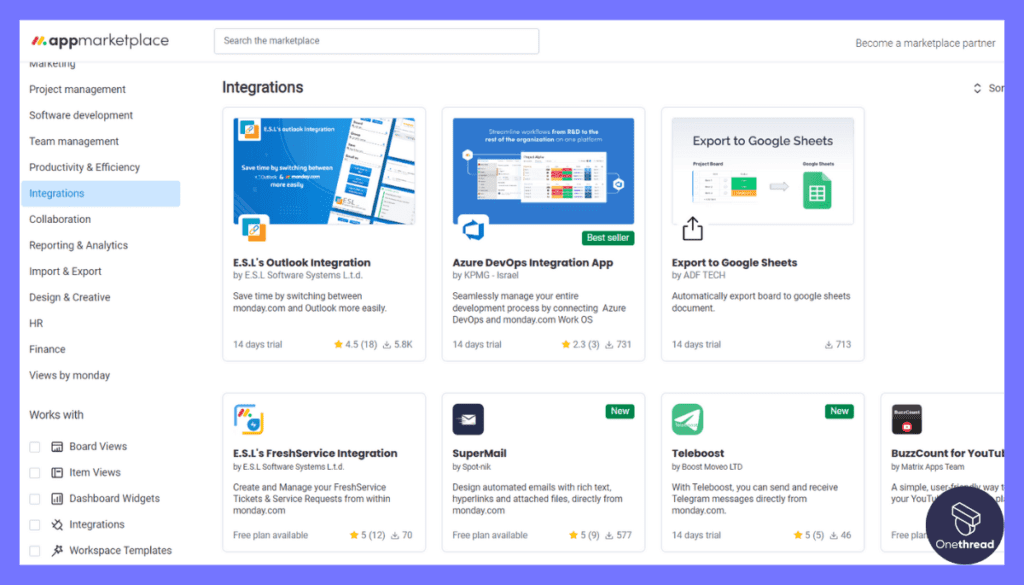



The platform can integrate with all your favorite tools like Slack, Dropbox, and Adobe Creative Cloud. This feature is particularly useful for event planners who often have to juggle multiple tools for communication, file sharing, and creative work.
Automation for Streamlined Processes:
Automation in Monday.com helps streamline processes so you can focus on what matters. Choose from a variety of automation recipes or create your own in minutes. For event planners, this means automating repetitive tasks like sending reminders or updating statuses.
Pros
- Highly customizable
- Multiple views for better planning
- Robust integrations with other tools
- Effective automation features
- Strong support team
Cons
- Can be expensive for small teams
- May have a learning curve for new users
- Some features may be overwhelming
Pricing Plan
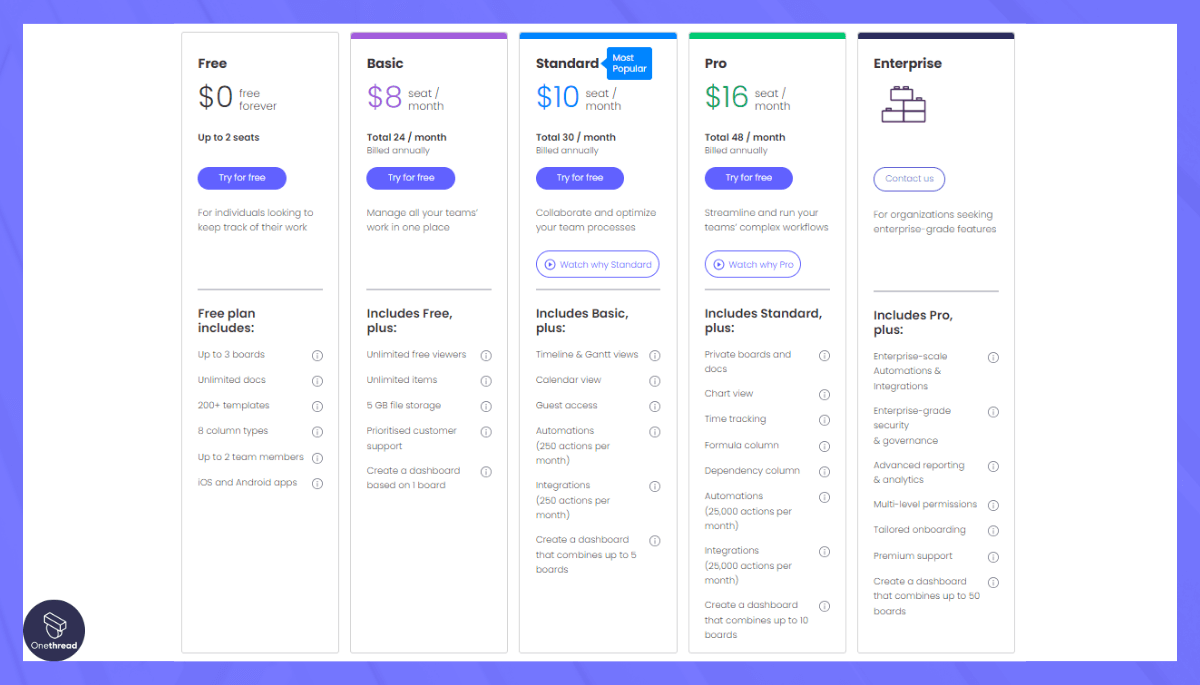



- Individual: Free
- Basic: $8 per user/month
- Standard: $10 per user/month
- Pro: $16 per user/month
- Enterprise: Custom pricing
What Users Say About Monday.com?
Capterra Review: 4.6/5
Positive Review
“Monday.com is the best way for teams to organize!” Gina L.
G2 Review: 4.7/5
Critical Review
“It would be helpful if, within a board, there could be variation within the group column content. This limitation might be due to the user’s level of proficiency within monday.com” Lori V.
10. Teamwork
Project management + online proofing perfect for marketing events
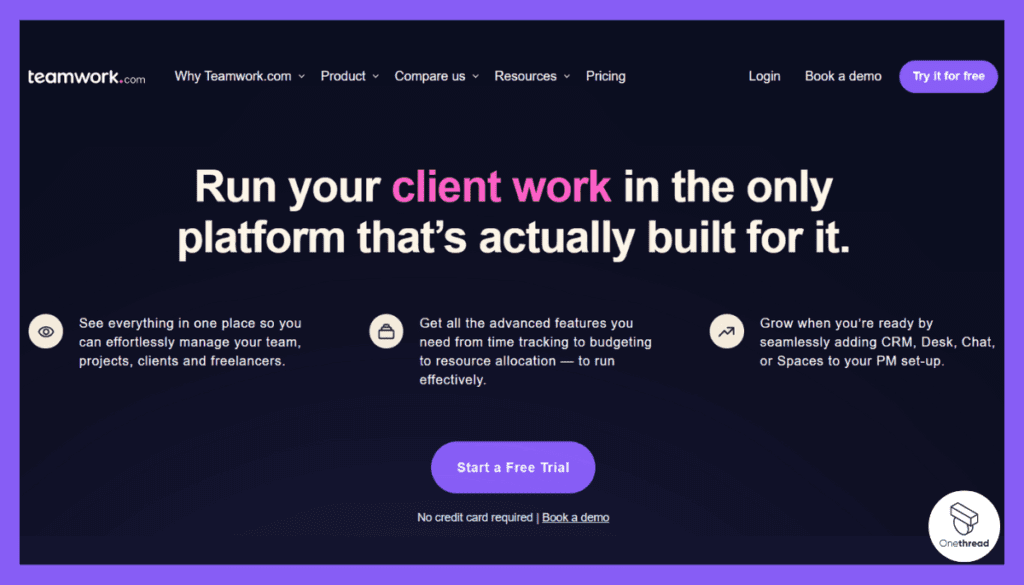



Teamwork is another outstanding project management software for event planning, distinguished by its robust task management, detailed project tracking, efficient time logging, and comprehensive file management capabilities.
These features are vital for seamless event planning. In our extensive testing, we found that Teamwork’s intuitive interface and customizable project boards significantly streamline the planning process.
Its ability to integrate with a wide range of tools enhances its functionality, making it ideal for managing complex events. Teamwork’s emphasis on collaboration, with features like team chat and shared task lists, ensures that every team member stays aligned and informed.
The platform’s flexibility in handling various event sizes and types, along with its powerful reporting and analytics tools, make Teamwork a top choice for event planners seeking a comprehensive and efficient project management solution.
Features
Here’s why it’s the best choice for event planning.
Comprehensive Project Management:
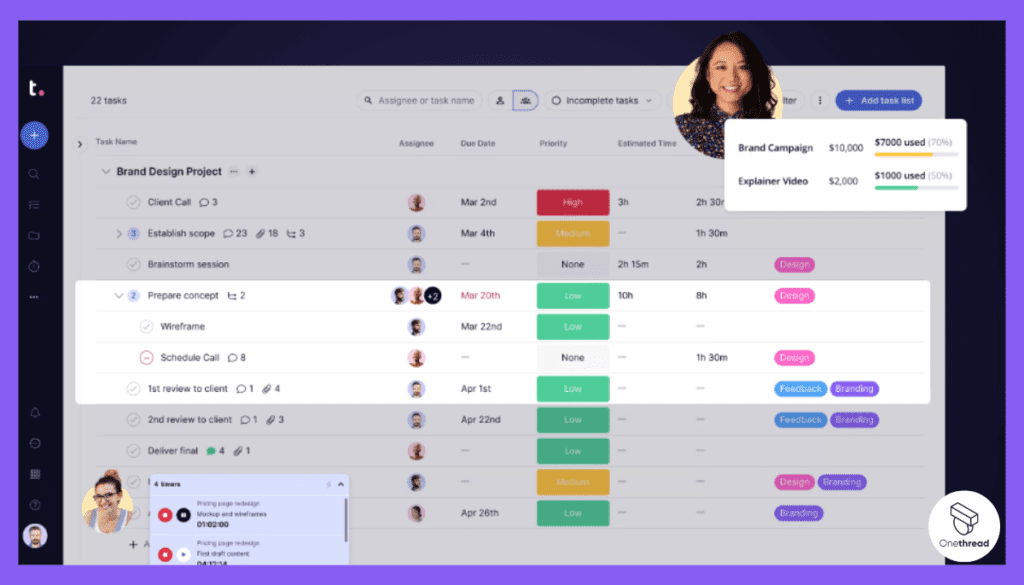



Teamwork offers a complete suite for project management. From task assignments to timeline tracking, everything is covered. For event planners, this means you can manage every aspect of your event, from initial planning to execution, all in one place.
Resource Scheduling and Utilization:
One of the biggest challenges in event organizing is resource allocation. Teamwork comes with a resource scheduler that helps you balance team capacity and prevent burnout. This ensures that your team is always optimally utilized, making your event organizing more efficient.
Detailed Reporting and Analytics:
Understanding the performance metrics of your event is crucial. Teamwork offers robust reporting features that allow you to track performance across every project, team, and client. This is particularly useful for event planners who need to monitor various KPIs to ensure the event’s success.
Invoice and Billing Management:
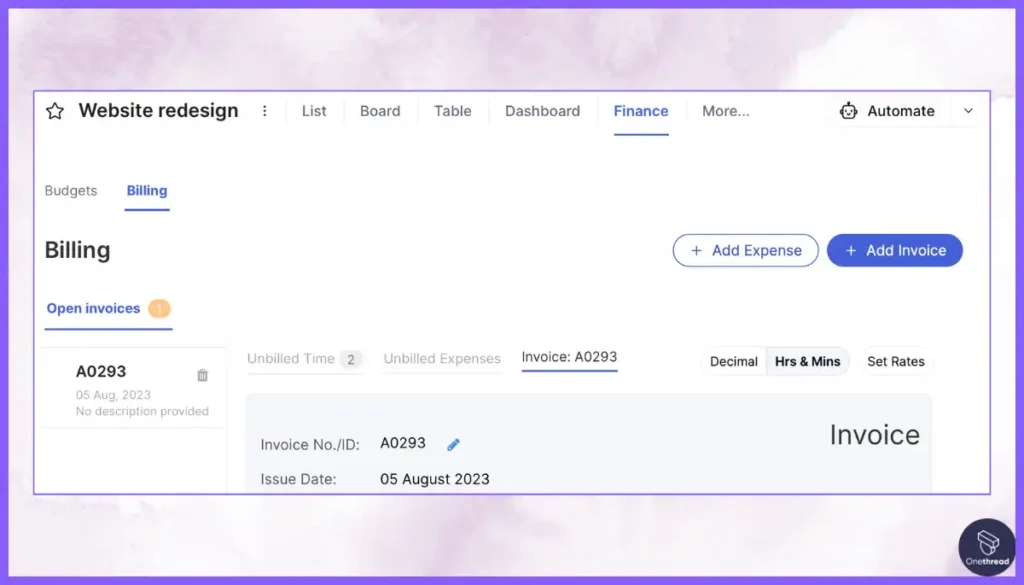

Financial management is a critical part of any event. Teamwork offers features for invoice and billing, allowing you to manage cash flow and budgets effectively. This ensures that you can keep track of all financial aspects related to your event.
Seamless Integrations:
Teamwork integrates with various tools you’re already using, streamlining all aspects of client work operations. For event planners, this means you can run everything from communication to file sharing to financial tracking in one place.
Pros
- Comprehensive project management features
- Resource scheduling for optimal utilization
- Detailed reporting and analytics
- Effective invoice and billing management
- Seamless integrations with other tools
Cons
- May have a learning curve for new users
- Some features may be overwhelming
- Pricing can be on the higher side for small teams
Pricing Plan
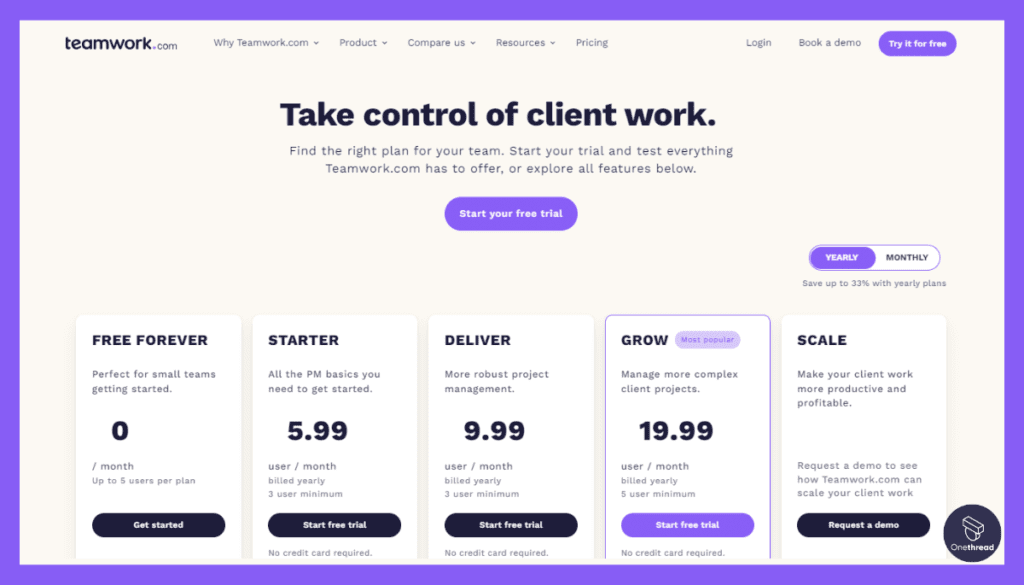



- Free: Limited features, up to 5 users
- Starter: $5.99 per user/month
- Deliver: $9.99 per user/month
- Go: $19.99 per user/month
What Users Say About Teamwork?
Capterra Review: 4.5/5
Positive Review
“1. The ability to assign tasks and track progress is a great feature. 2. The interface is user-friendly and easy to navigate. 3. The pricing is very affordable compared to other project management software. Paul B T
G2 Review: 4.4/5
Critical Review
“The Gantt chart feature is someone lacking in reliability and features. * Not as many integrations as other similar products” Daniel H.
Key Features to Consider in Project Management Software for Event Planning
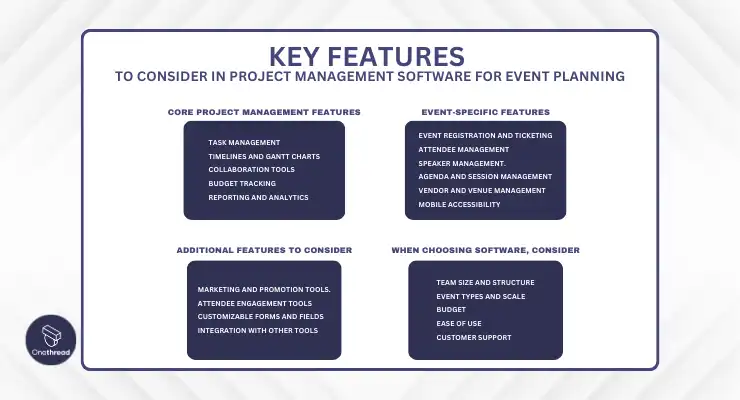



Key features to consider when selecting event planning project management software:
Core Project Management Features:
- Task management: Create, assign, track, and prioritize tasks with deadlines and dependencies.
- Timelines and Gantt charts: Visualize project schedules, identify critical paths, and monitor progress.
- Collaboration tools: Facilitate communication, file sharing, and real-time updates within the team and with vendors.
- Budget tracking: Monitor expenses, compare actual costs to estimates, and generate financial reports.
- Reporting and analytics: Gain insights into project performance, identify bottlenecks, and make data-driven decisions.
Event-Specific Features:
- Event registration and ticketing: Manage online registration, ticketing, waitlists, discounts, and payment processing.
- Attendee management: Track RSVPs, create attendee profiles, manage communication preferences, and generate reports.
- Speaker management: Organize speaker submissions, create speaker profiles, manage schedules and travel arrangements.
- Agenda and session management: Build event agendas, schedule sessions, manage room assignments, and create speaker bios.
- Vendor and venue management: Store vendor contracts, and contact information, and manage venue details and logistics.
- Mobile accessibility: Access and manage event information on the go for on-site coordination.
Additional Features to Consider:
- Marketing and promotion tools: Create email campaigns, landing pages, and social media integrations, and track event marketing performance.
- Attendee engagement tools: Facilitate networking, Q&A, surveys, and live polling during the event.
- Customizable forms and fields: Adapt the software to specific event needs and data collection requirements.
- Integration with other tools: Connect with calendars, email, CRM, payment gateways, and other software for a streamlined workflow.
When choosing software, consider:
- Team size and structure: Match features to team complexity and collaboration needs.
- Event types and scale: Ensure the software can handle the size and complexity of your events.
- Budget: Evaluate pricing models and align them with your financial constraints.
- Ease of use: Choose a user-friendly interface that requires minimal training.
- Customer support: Ensure access to reliable support for troubleshooting and assistance.
So, What’s The Best Project Management Software For Event Planning?
From our extensive research and testing, we found onethread to be the best project management software for event planning as it offers robust tools to manage your event tasks, schedules, and details all in one place.
With customizable templates, calendars, Gantt charts, and more, onethread gives event pros the ability to plan and execute flawless events efficiently. We especially love the real-time collaboration and intuitive interface that make team communication seamless even during the busiest days.
While you’re exploring, check out Cvent and Whova too – awesome options! But for user-friendliness, affordability, and support that wows, Onethread is definitely worth a closer look.
Getting the Most Out of Project Management Software for Event Planning
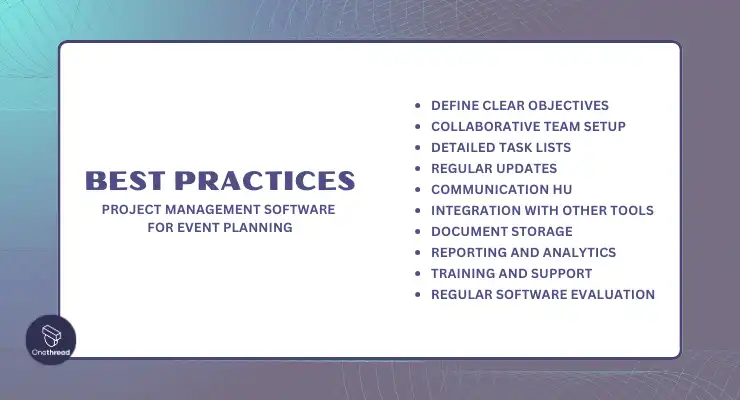



To make the most of your project management software for event planning, follow these best practices:
- Define Clear Objectives:
- Clearly outline your event’s goals and objectives within the software.
- Collaborative Team Setup:
- Ensure all team members have access and understand how to use the software.
- Detailed Task Lists:
- Create comprehensive task lists with deadlines and assign responsibilities.
- Regular Updates:
- Encourage team members to update progress regularly to maintain transparency.
- Communication Hub:
- Use the software as a central communication hub for discussions, file sharing, and updates.
- Integration with Other Tools:
- Integrate your software with other essential tools like calendars and email for seamless workflow.
- Document Storage:
- Utilize the software’s document storage for easy access to important files.
- Reporting and Analytics:
- Leverage reporting and analytics features to track key performance indicators.
- Training and Support:
- Provide training and access to support resources to address any software-related issues.
- Regular Software Evaluation:
- Periodically assess your software’s effectiveness and make necessary adjustments.
By following these practices, you can maximize the benefits of project management software for event planning and ensure a successful event.
FAQs
Is project management software suitable for both small and large-scale events?
Yes, project management software can be adapted to various event sizes. The key is to choose software that aligns with the complexity and needs of your event, whether it’s a small gathering or a large-scale conference.
How do I ensure data security and privacy when using project management software?
To safeguard data, select software that offers robust security features, including data encryption and access controls. Additionally, regularly update the software to patch vulnerabilities and train your team on security best practices.
Can I access project management software on mobile devices?
Many project management software options have mobile apps or mobile-friendly web interfaces, allowing you to manage your event tasks and communications on the go. Check for mobile compatibility when choosing your software.
What role does project management software play in budget management for events?
Project management software can help you create and monitor budgets, track expenses, and generate financial reports. It ensures you stay within budget and can make adjustments as needed throughout the event planning process.
Final Words
Effective utilization of project management software for event planning is pivotal for achieving seamless coordination and successful events. By adhering to best practices, including clear goal setting, teamwork, and regular updates, event organizers can harness the full potential of these tools.
The software serves as a central hub for communication, document storage, and data analysis, enabling an efficient event management platform and ensuring memorable experiences for attendees.
